3D Print Masquerade Mask
by Penolopy Bulnick in Workshop > 3D Printing
11649 Views, 84 Favorites, 0 Comments
3D Print Masquerade Mask
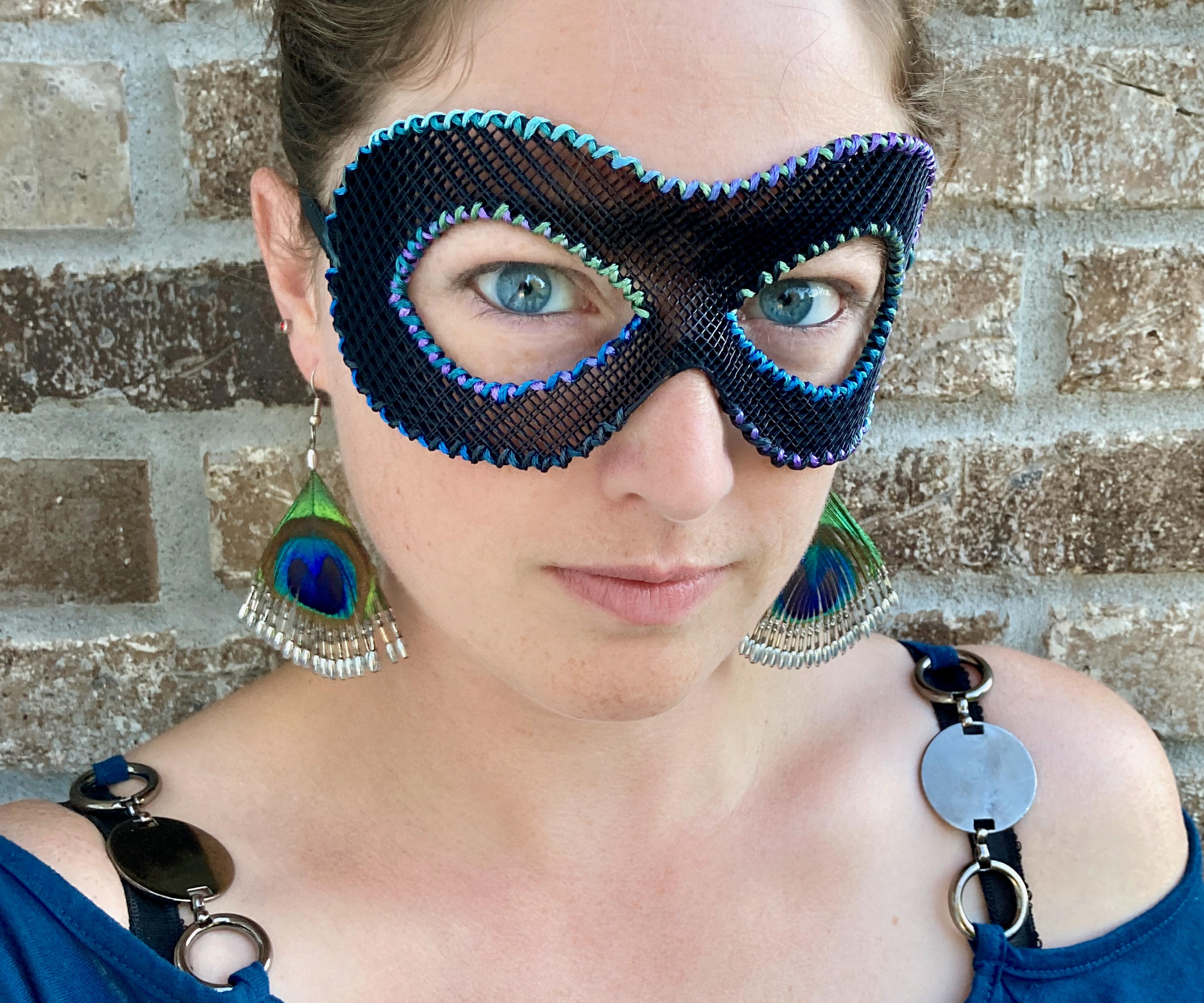
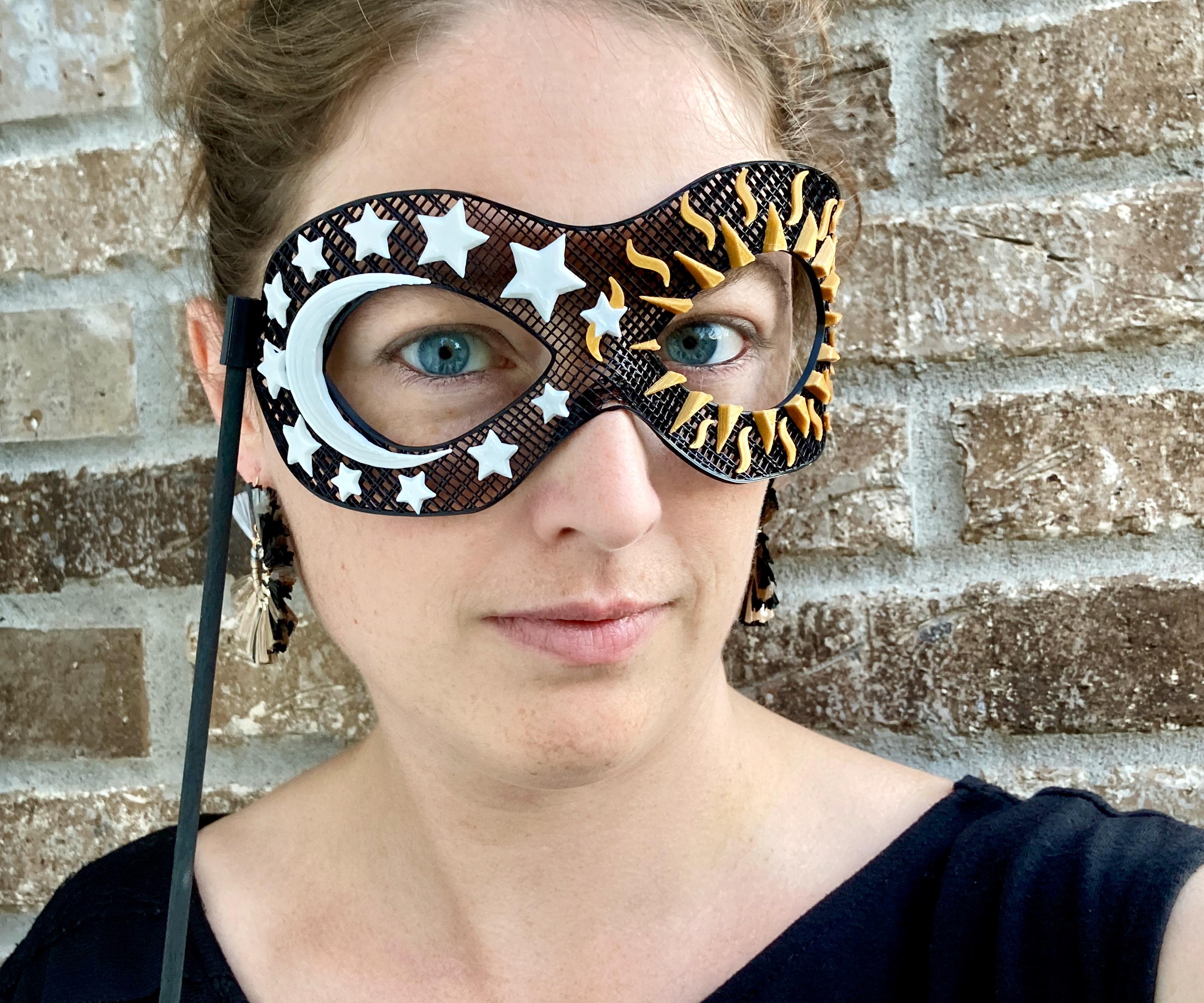
After doing my 3D printed floating mask and flexible base 3D printed mask, I thought it would be interesting to try another style. I didn't want to have to deal with support as it causes less than ideal results and is more prone to issues, so I decided to work with a mask design that is one flat piece that you then shape afterwards. It's really quite easy and all you need is a head shape and either hot water / hair dryer / heat gun.
Instructable 353
Supplies
Basic Supplies:
- 3D Printer - I have a Prusa MK3 and the MMU2 which allows me to do multi-colored prints
- PLA filament of choice
- Felt - for the nose cushion
- E6000 Glue or Hot Glue
- Little spring clamps - optional, I like them for holding things why glue dries
Tie/Elastic Mask:
- 1/4" wide Elastic
or
- 1/4" wide Ribbon
Stick Mask:
- 5mm Dowel - you can use a different size but you will either need to alter the original design to work with your size or adjust it by adding more glue to fit in a stick that's too small, or sand one that is too big.
Decorating (optional):
- Embroidery Floss
- Cross Stitch Needle - blunt needle
- Jump Rings
- Chain
Any Amazon links are Amazon Associates links.
3D Designing - Tie on Mask
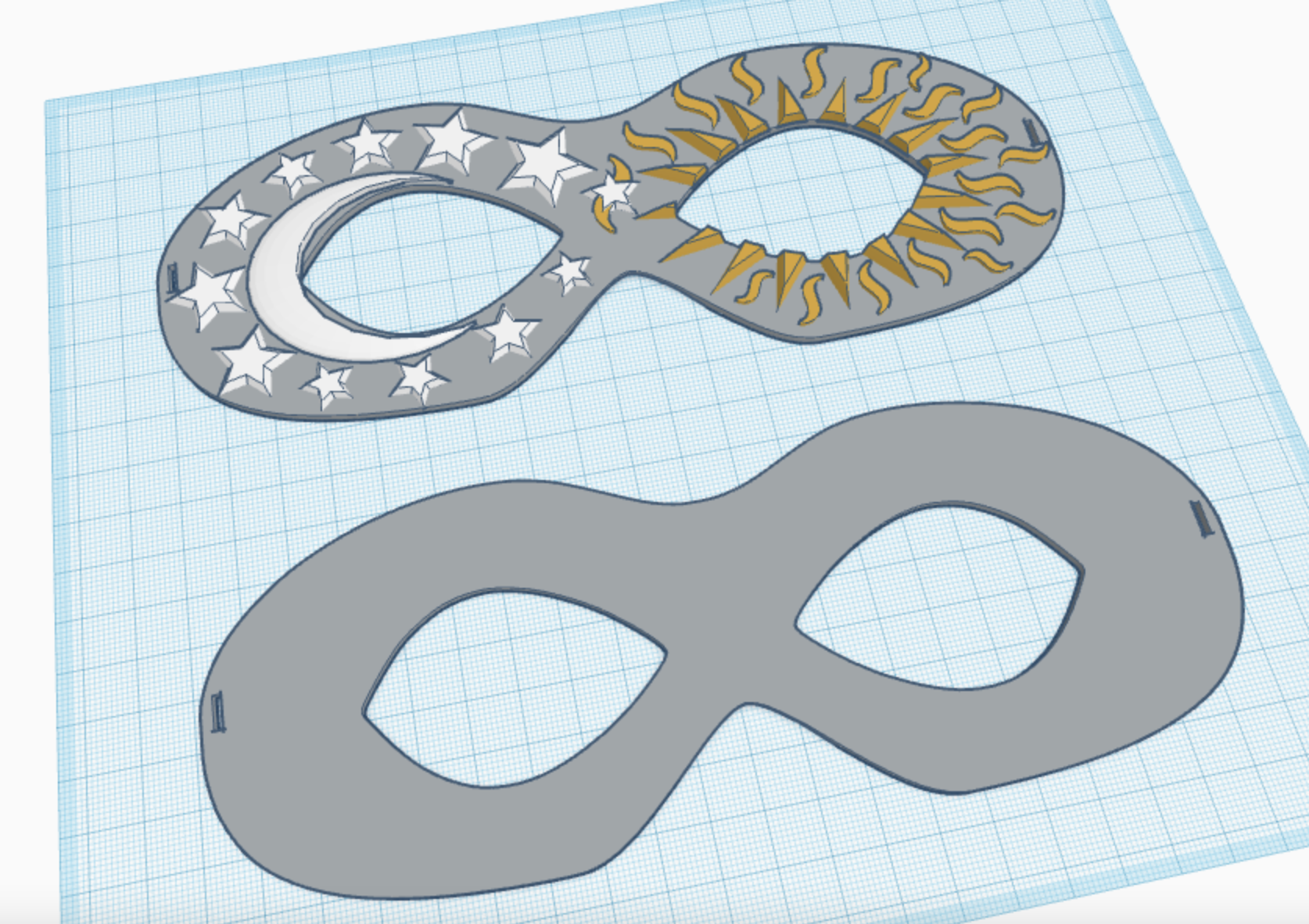
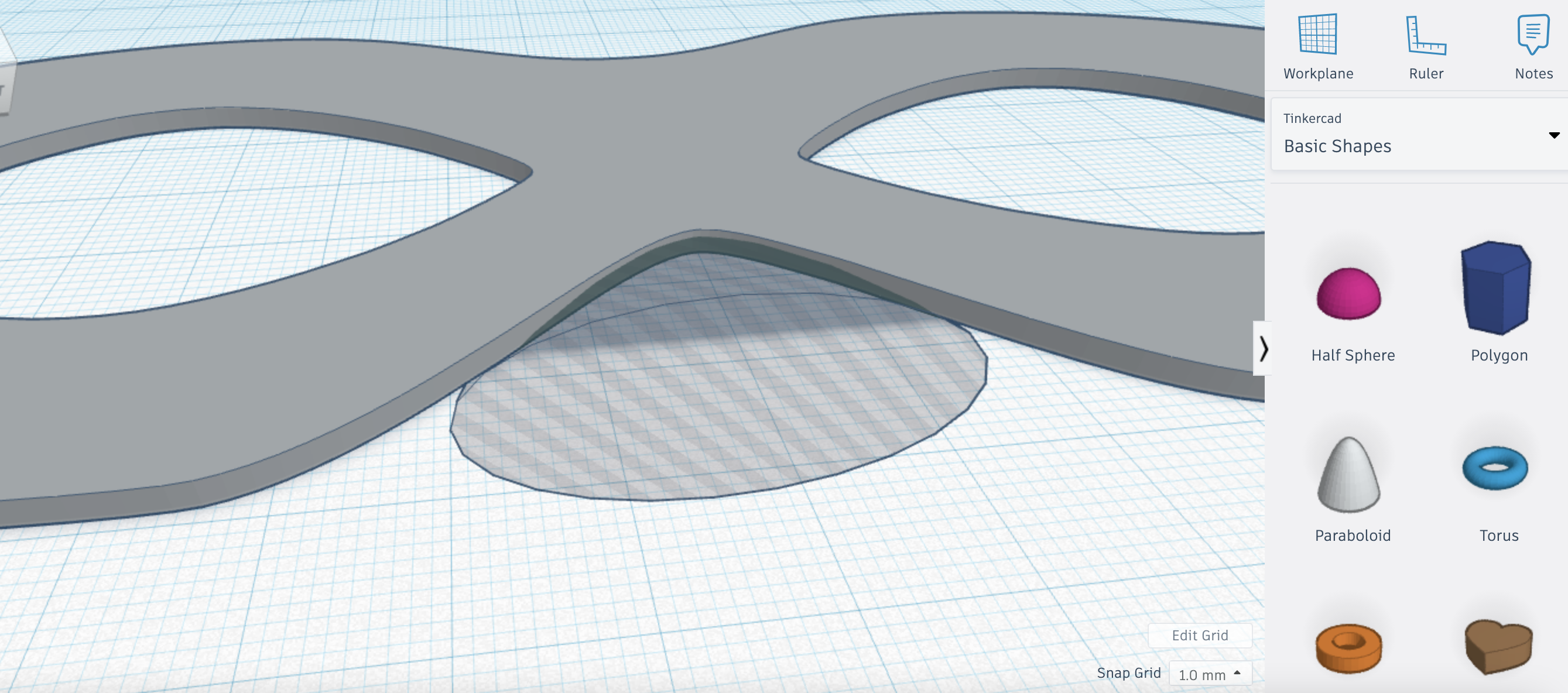
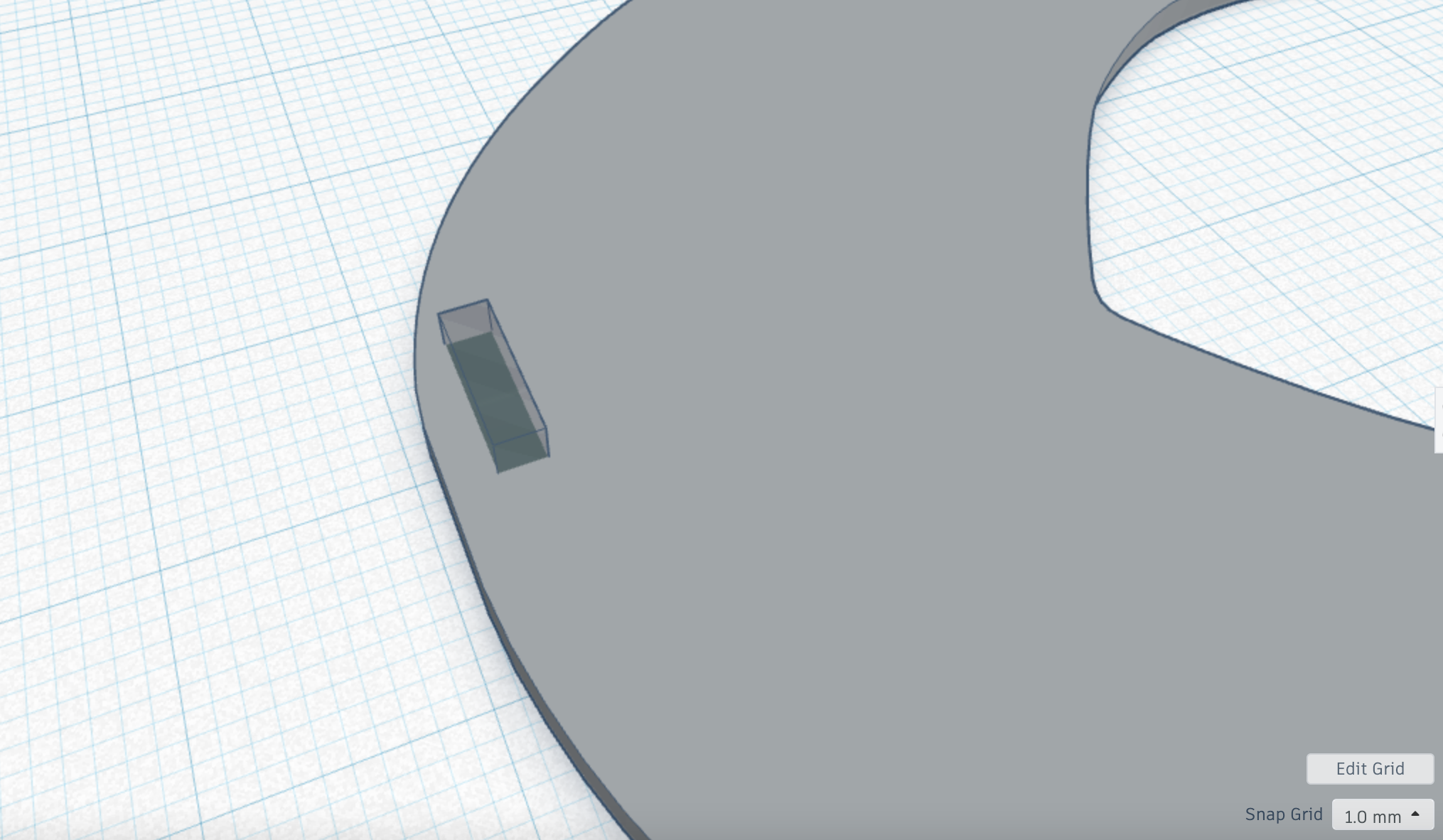
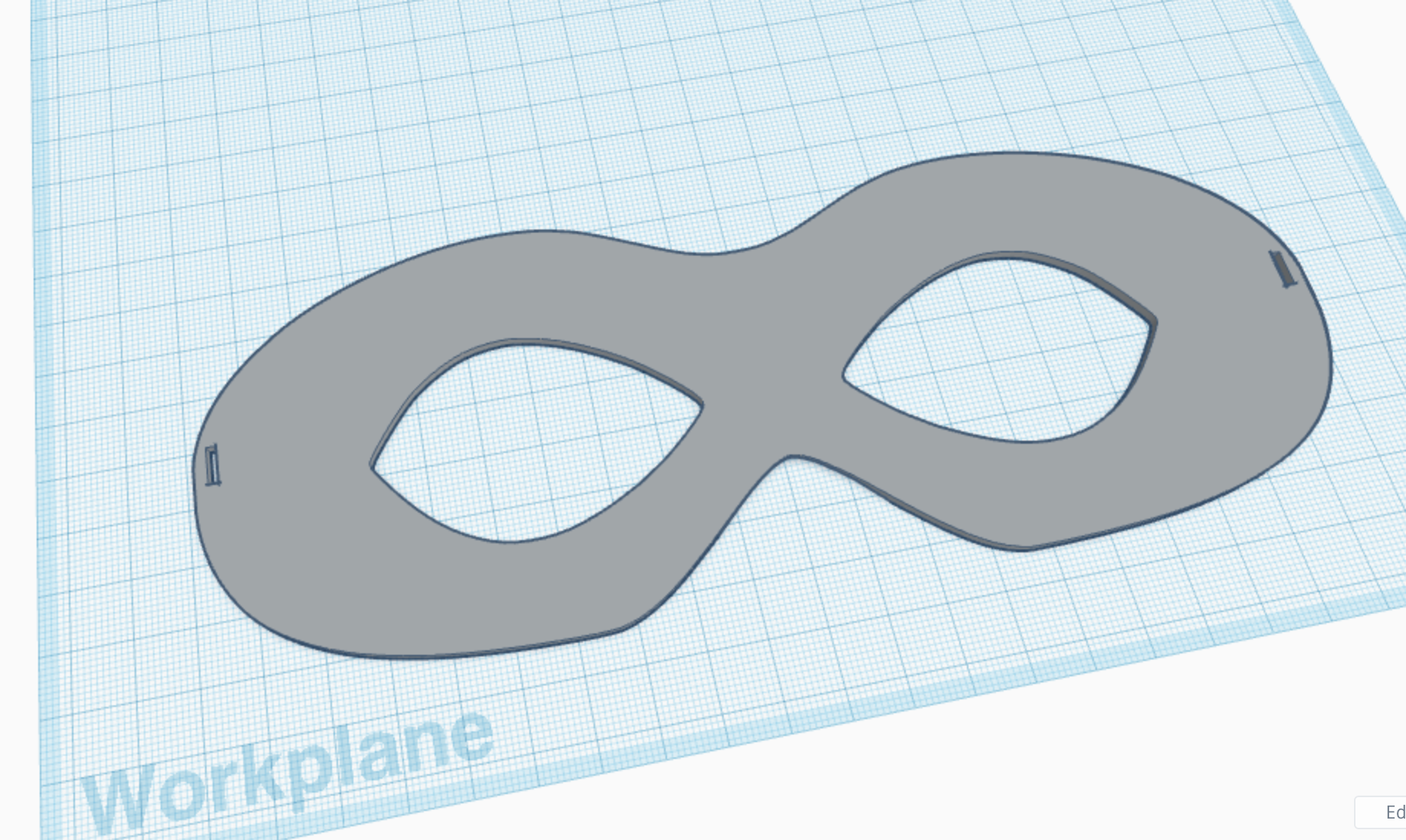
The designing can be pretty simple depending on if you decide to add a design to it. I started with the same basic shape I used to help shape the floating masks I did before. I added a paraboloid to the nose bit to give it a little slope away from the face, but not too much that it would have too much of an overhang and not print right.
I added two small 1/4" slots for the elastic I knew I would add later.
For the ones that had a design, I actually did it based on my daughters request for a mask that had a moon, stars, and sun. I took my Moon and Stars mask and Sun mask designs from before and just kind of combined them.
3D Designing - Stick Mask
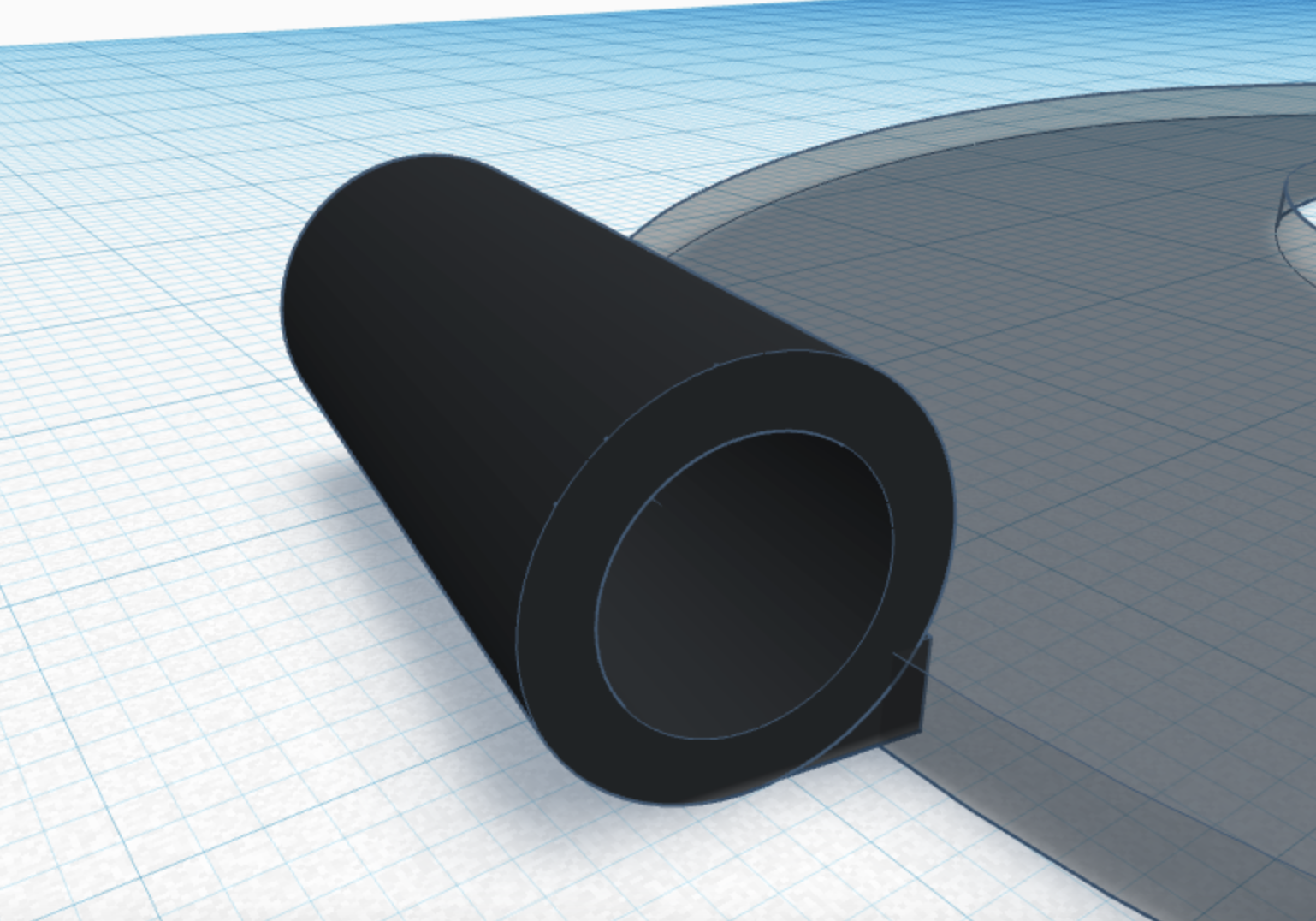
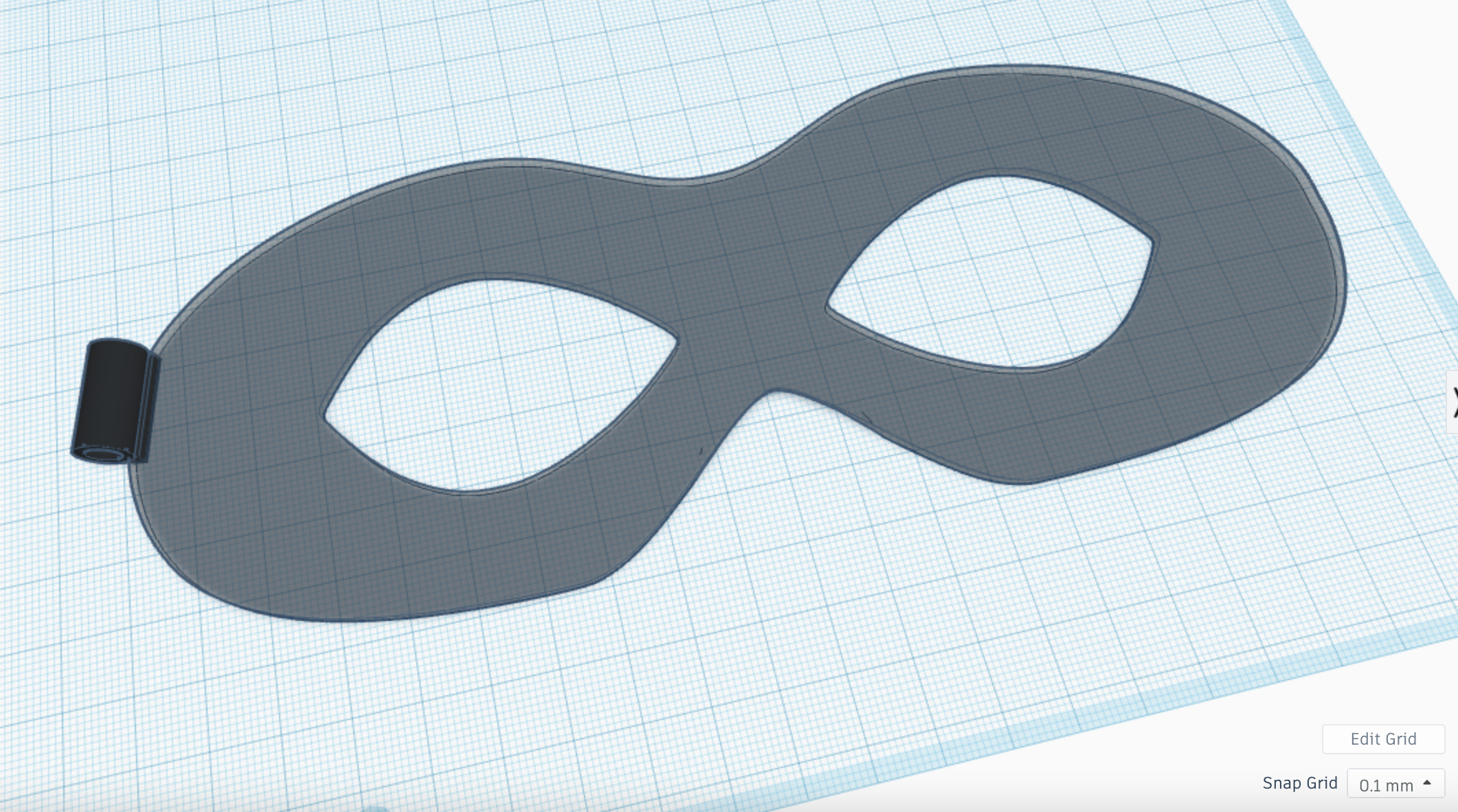
This mask was a bit trickier. I, again, started with the mask base from before. Then, I needed to add the stick slot. It's a basic cylinder with a hole in it and an extra rectangle to get it attached better to the mask.
Placement is the tricky part here. I had it, originally, just parallel on the side, but this made it awkward to hold. I looked up what other people have and many actually have it below one eye. I knew this would look odd with my mask so I worked on angeling it away from the face to make it easier to hold. It was still difficult to place since it is being printed flat, but I found if I angled it out a bit while shaping the mask, it helped make it easier to hold once the stick was in.
Slicing
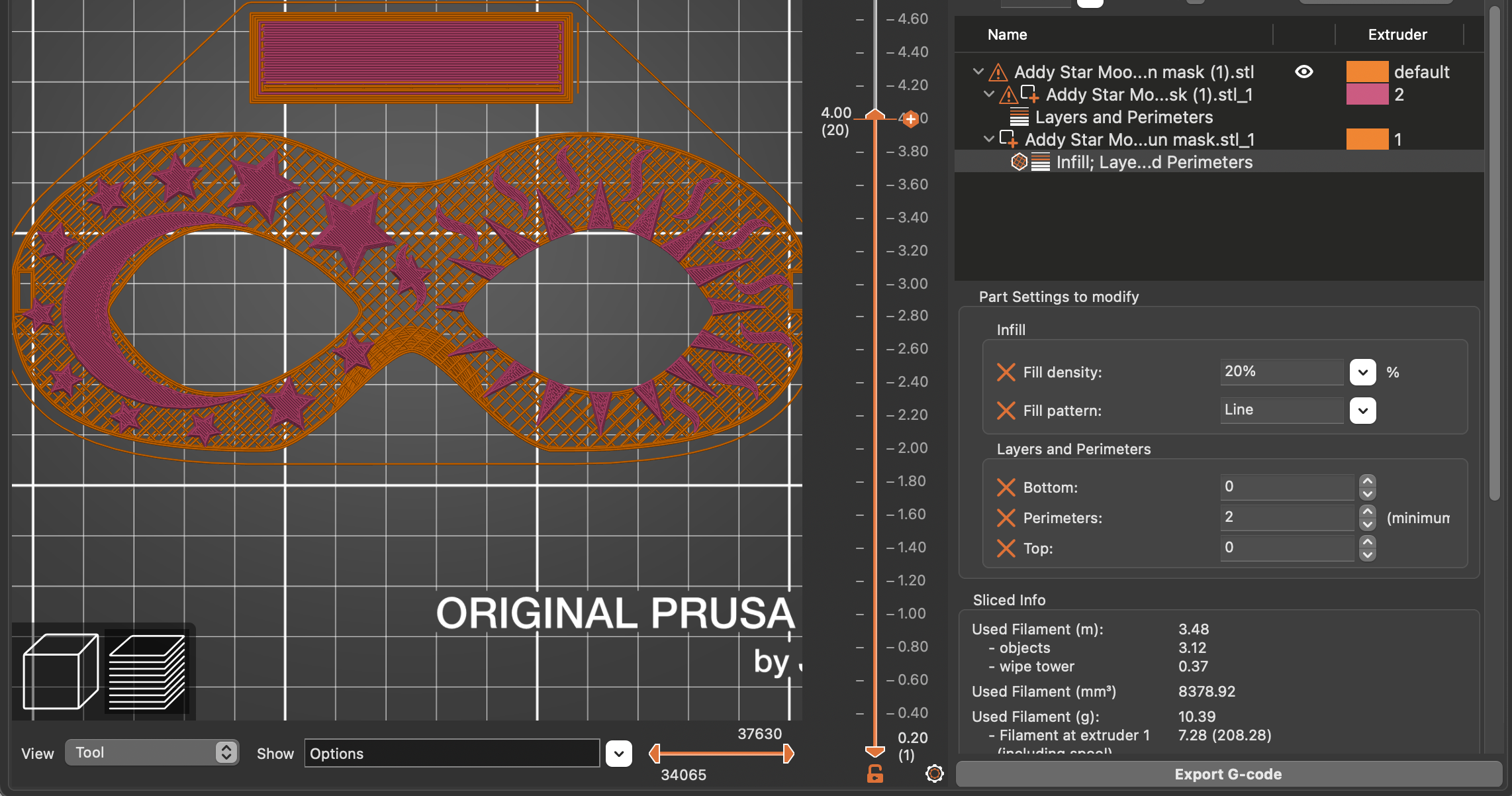
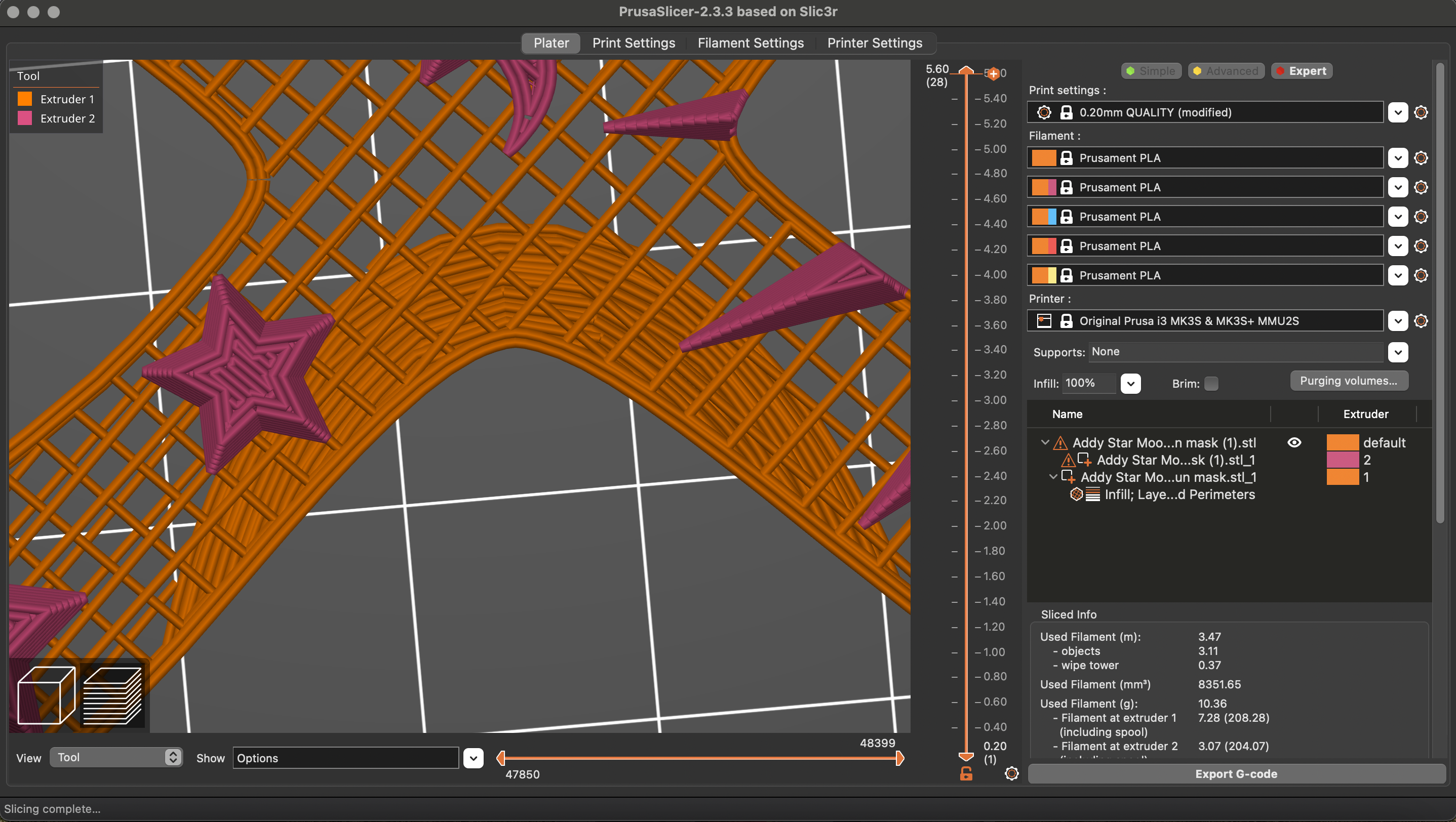
Slicing is where you do all the decorative work.
You need to remove all top and bottom layers.
Try different infill patterns until you like the look. Gyroid is good, but I really like Line. Rectilinear would probably be good for embroidery. I go over and share what some of the infills look like in my 3D printed infill jewelry.
Adjust the infill percentage until you like the look.
If you have a design on top of the mask, you need top and bottom layers for the designs, and I did 100% infill to make sure it was sturdy on there. Also, there might be parts it just doesn't stick properly because the points of your design don't match up to the infill design. It can be difficult to do a mask with designs on it if you can't adjust layers. I brought them in as separate designs and then had their settings custom from each other.
Shaping
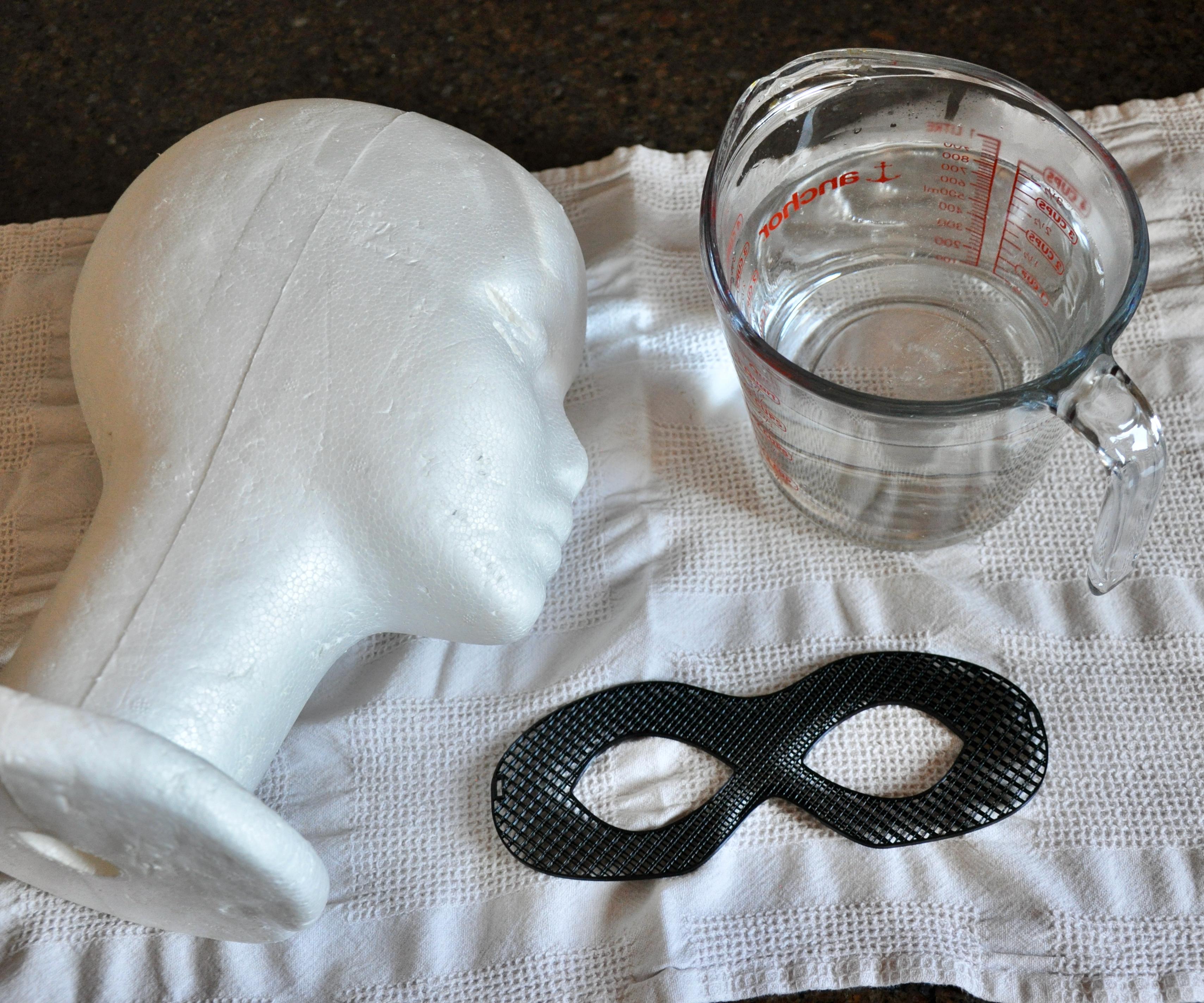
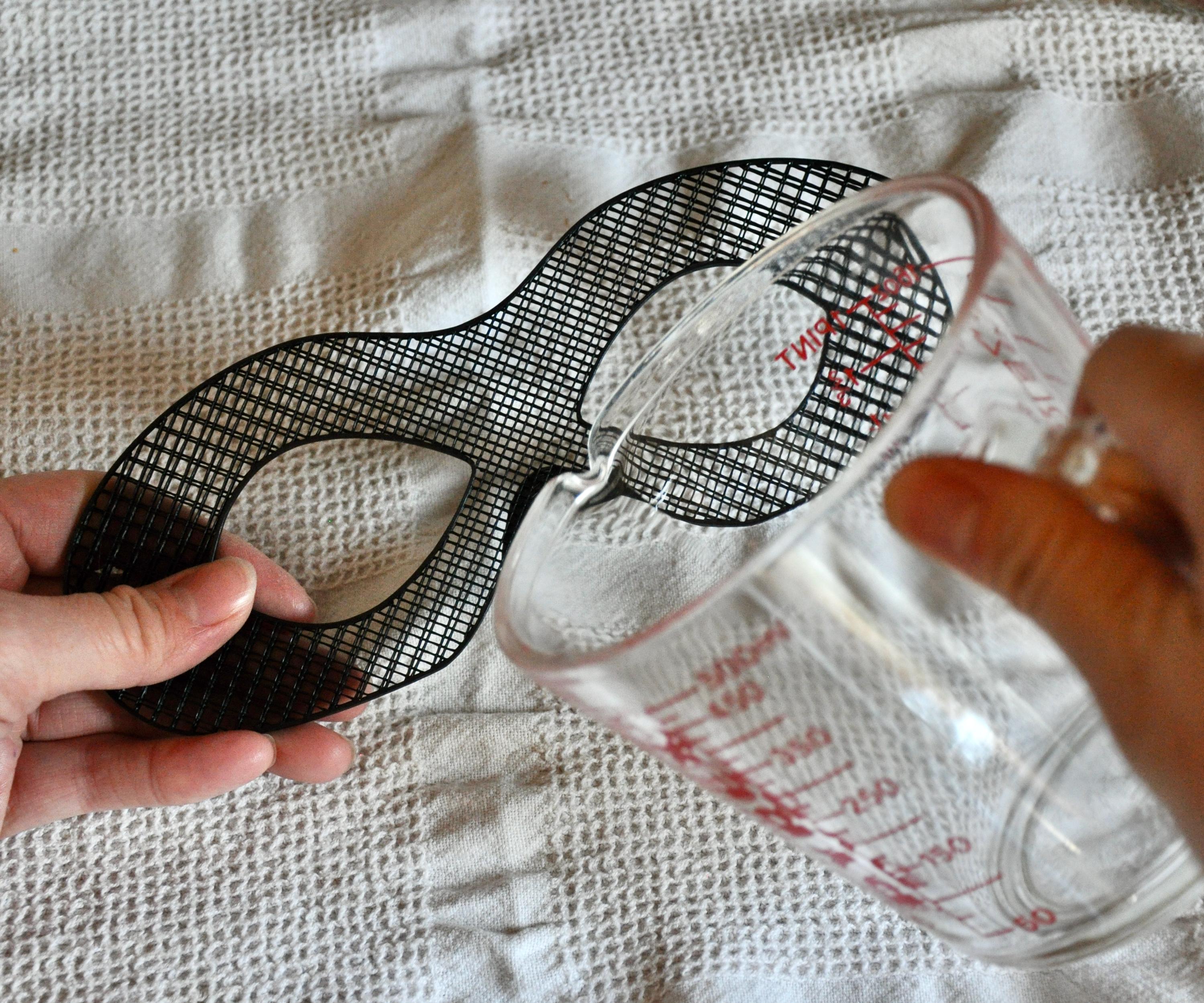
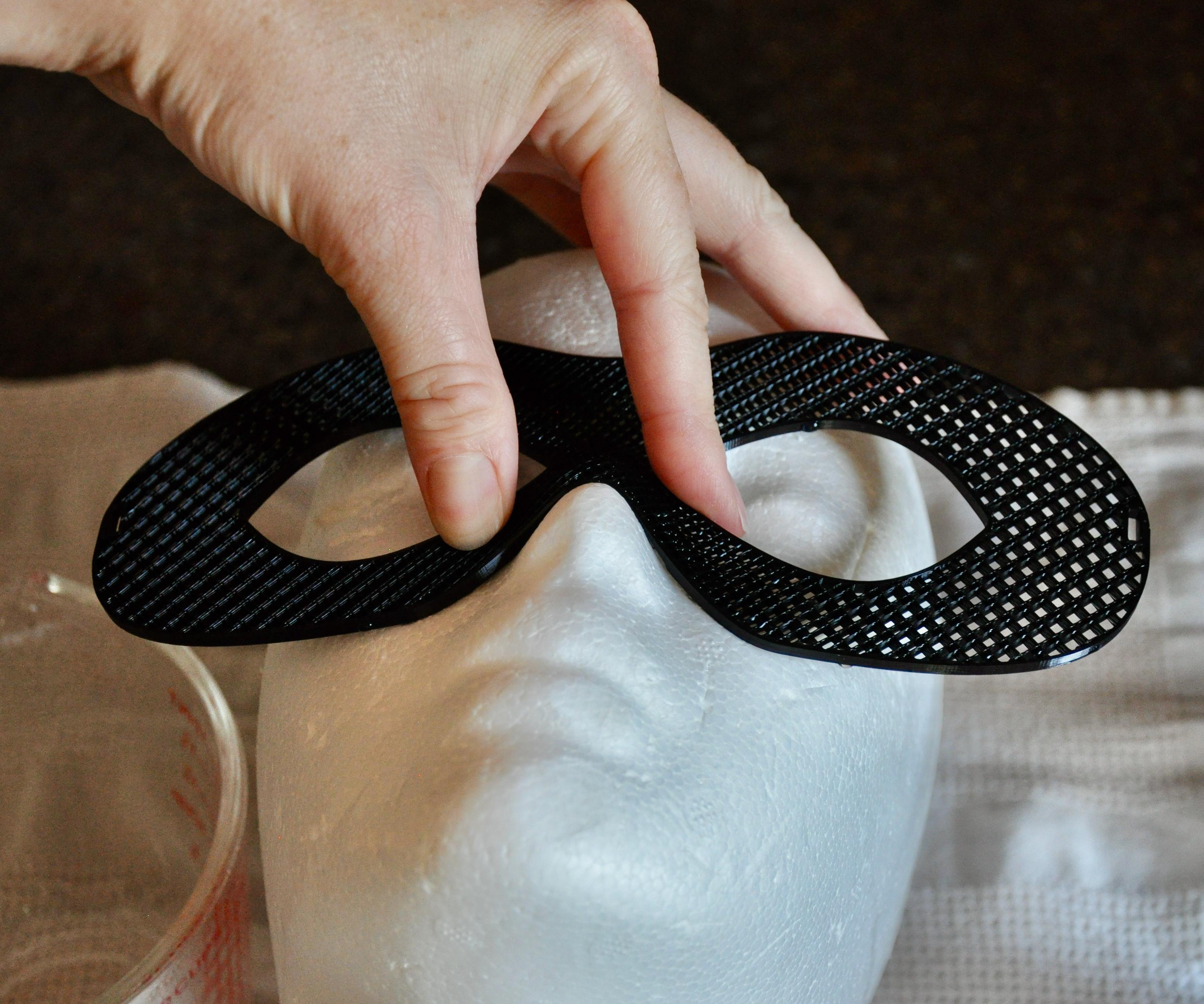
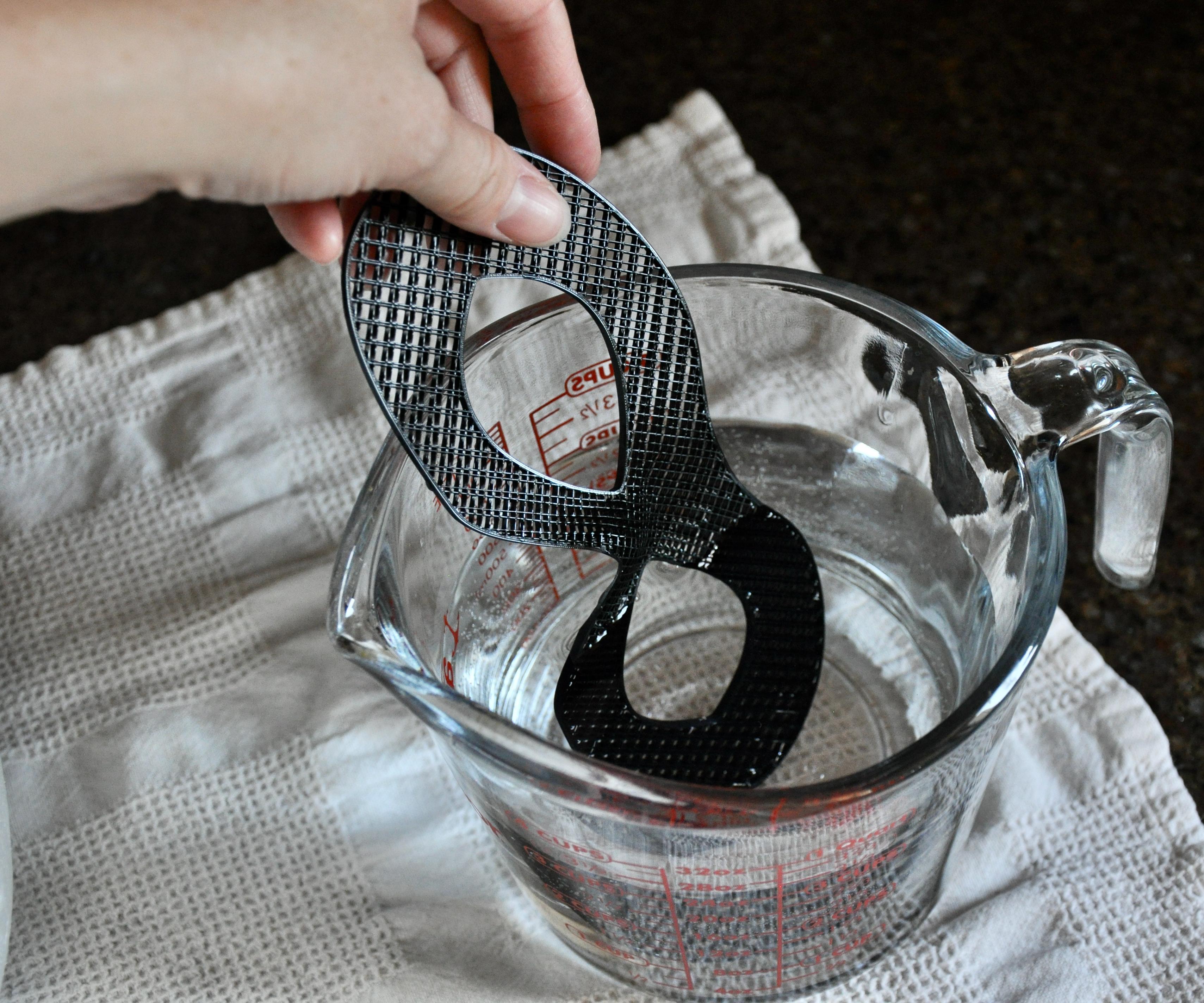
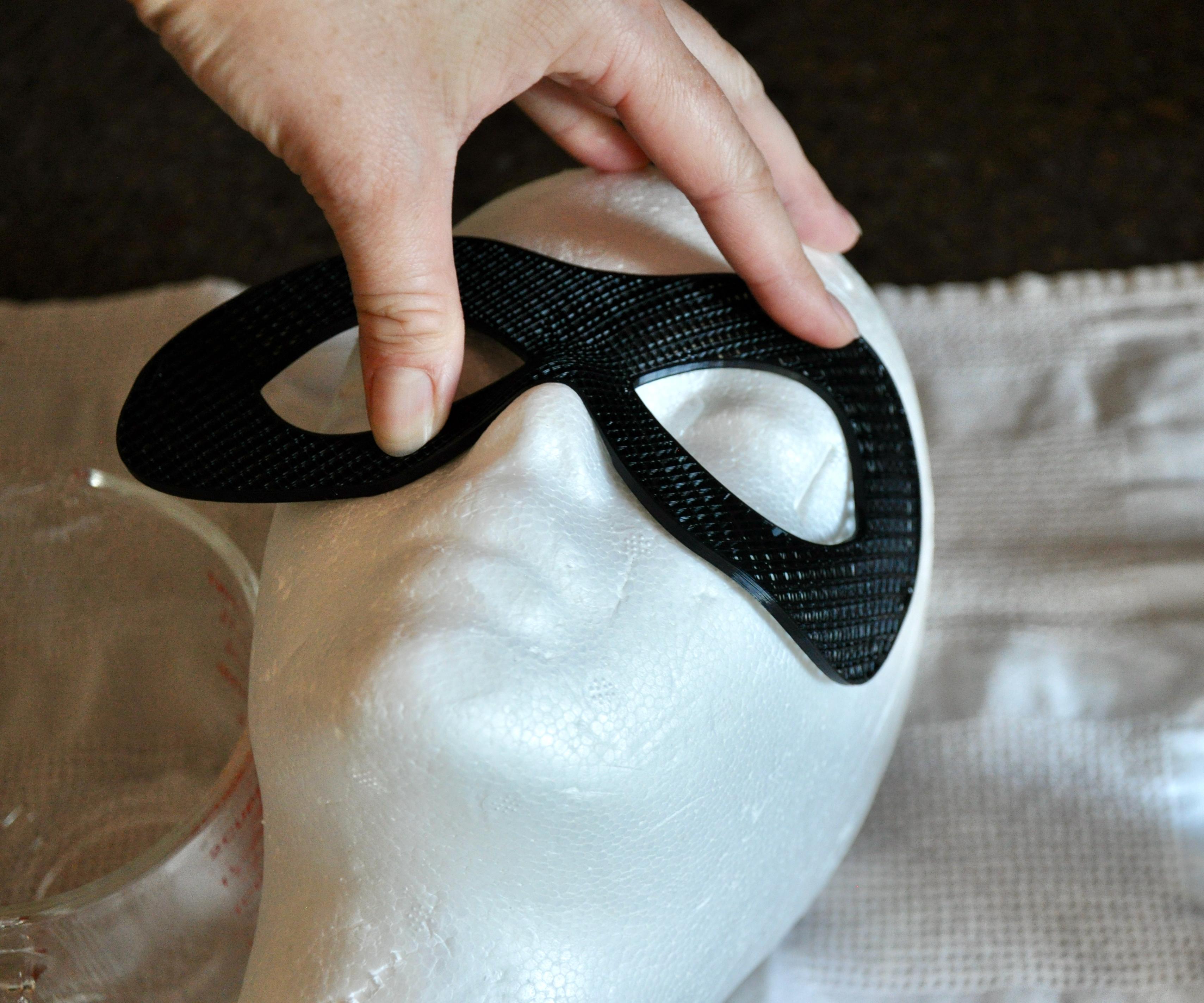
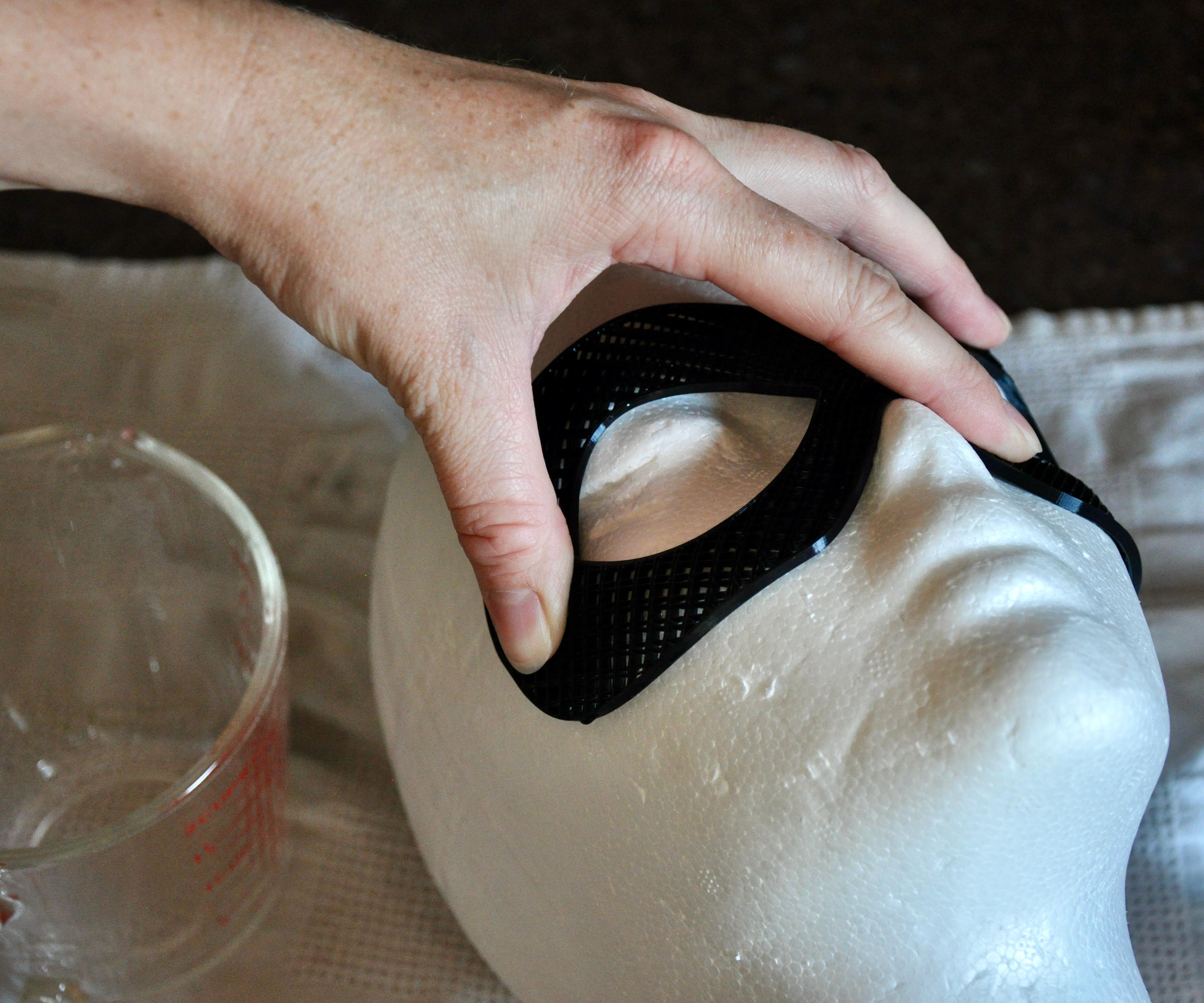
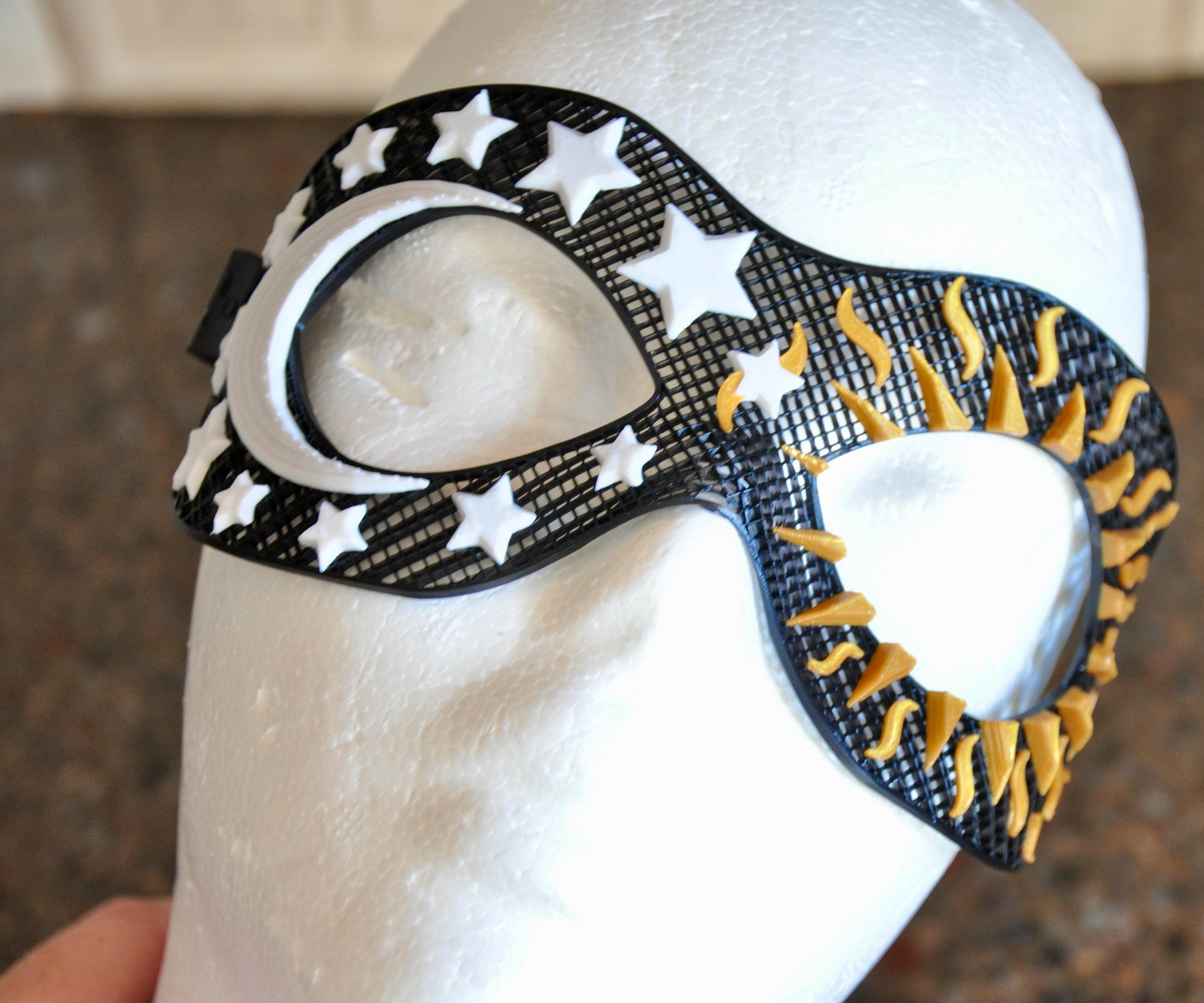
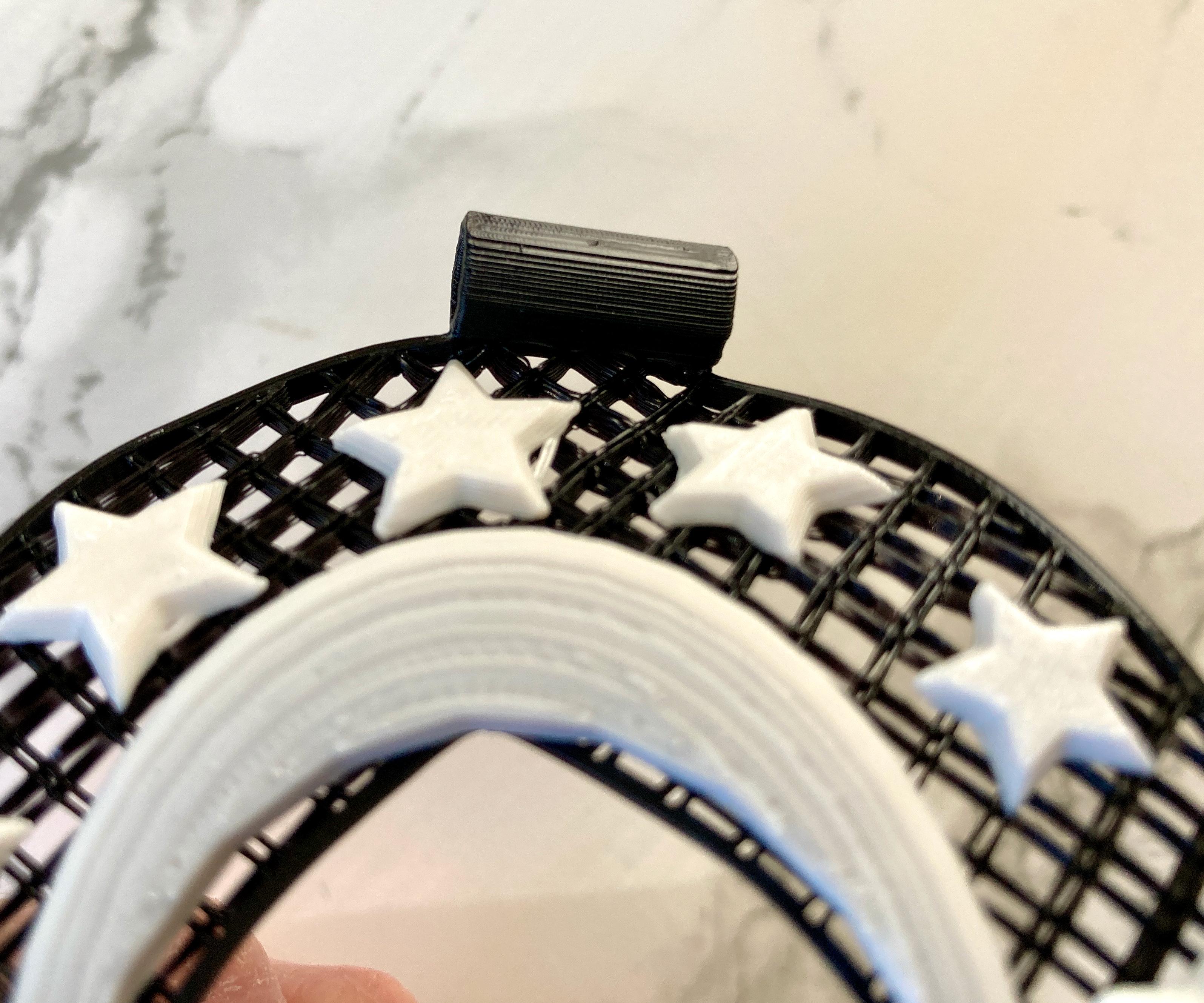
Shaping can be pretty straightforward. If you are using a heat gun or hair dryer, you can carefully hold it on the form and heat it up while forming it to the shape.
I used hot water. If you use this method, I recommend heating up a big glass measuring cup with water. It doesn't have to be boiling, just hot enough to bend the mask. You can test it and reheat it till it starts to allow the mask to bend.
I prefer starting by carefully pouring the hot water over the center of the mask while holding it over the sink. Then I shape it quickly over the nose.
Once the middle is done, you can just hold each side one at a time in the hot water and shape it. As long as it isn't too hot, you can check it on your face, and then customize the fit as you would like.
Stick Mask Note
For the stick mask, you need to angle the slot out a bit to make it easier to hold. I recommend having your stick nearby, warm up that portion of the mask, stick the stick in, then pull it and shape it with the stick in. You don't want to distort the opening or the stick won't fit. This can be difficult, but you just have to fiddle with it until you are happy. Luckily, you can always rewarm it up and reshape it.
Nose Cushion (optional)
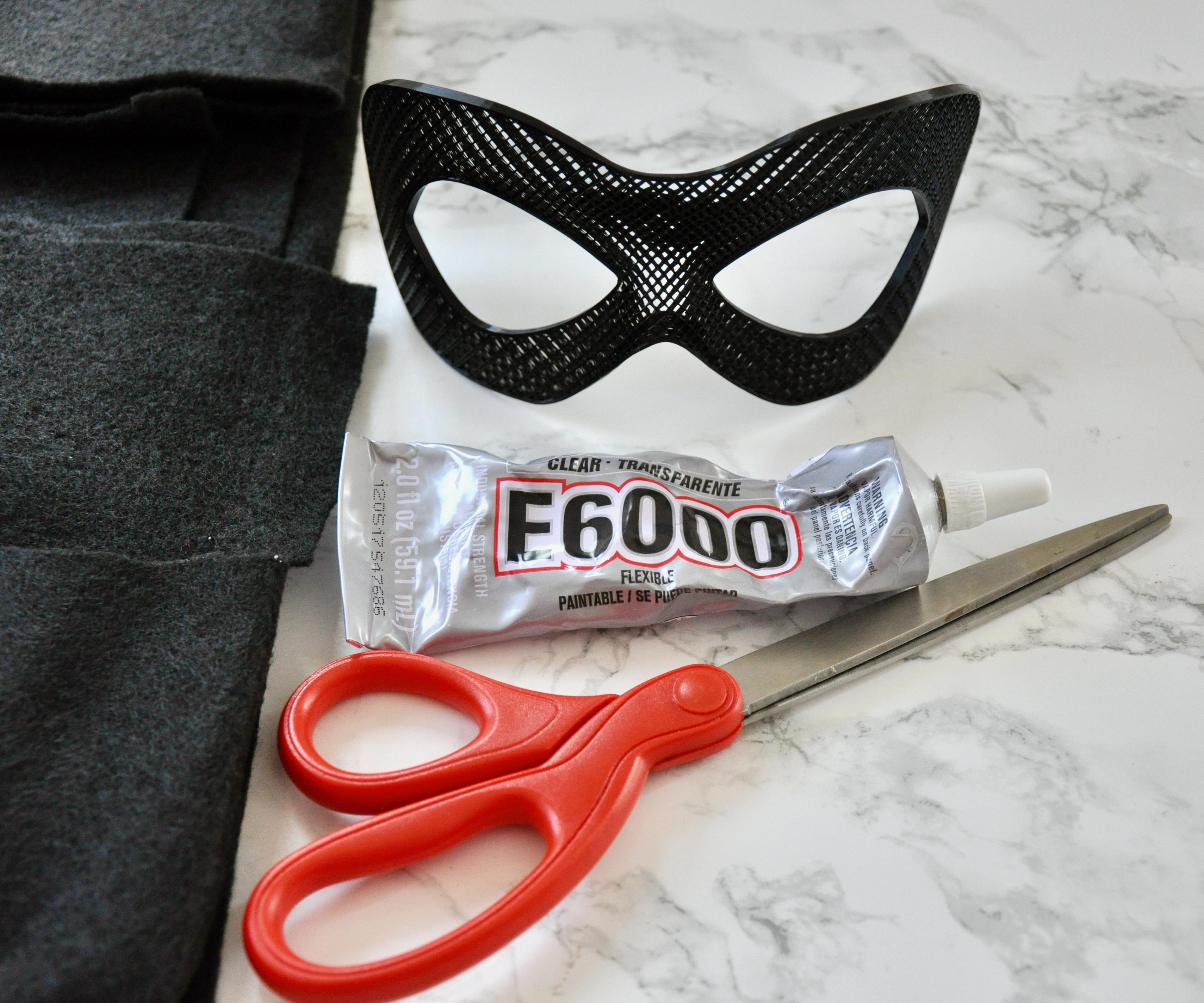
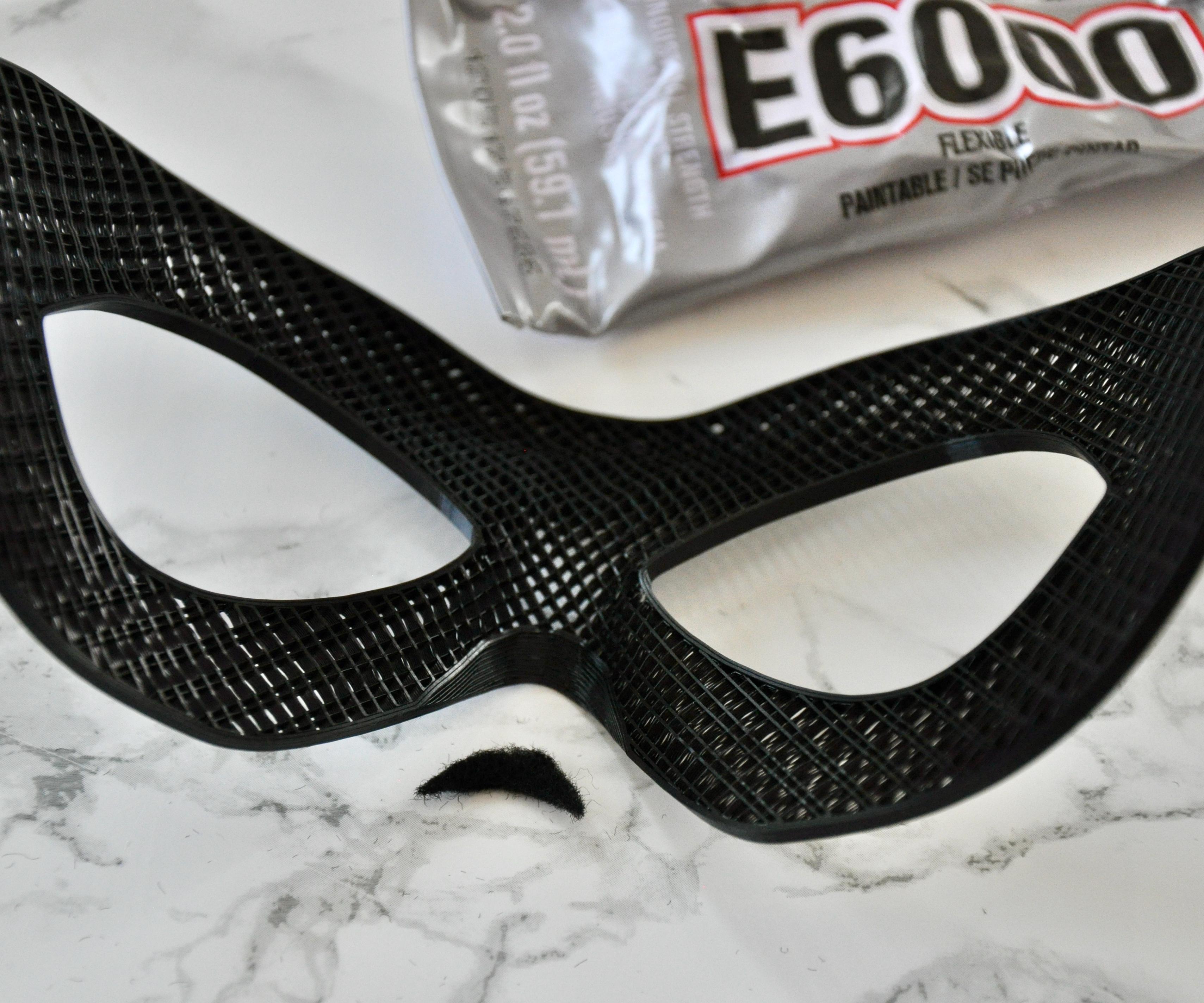
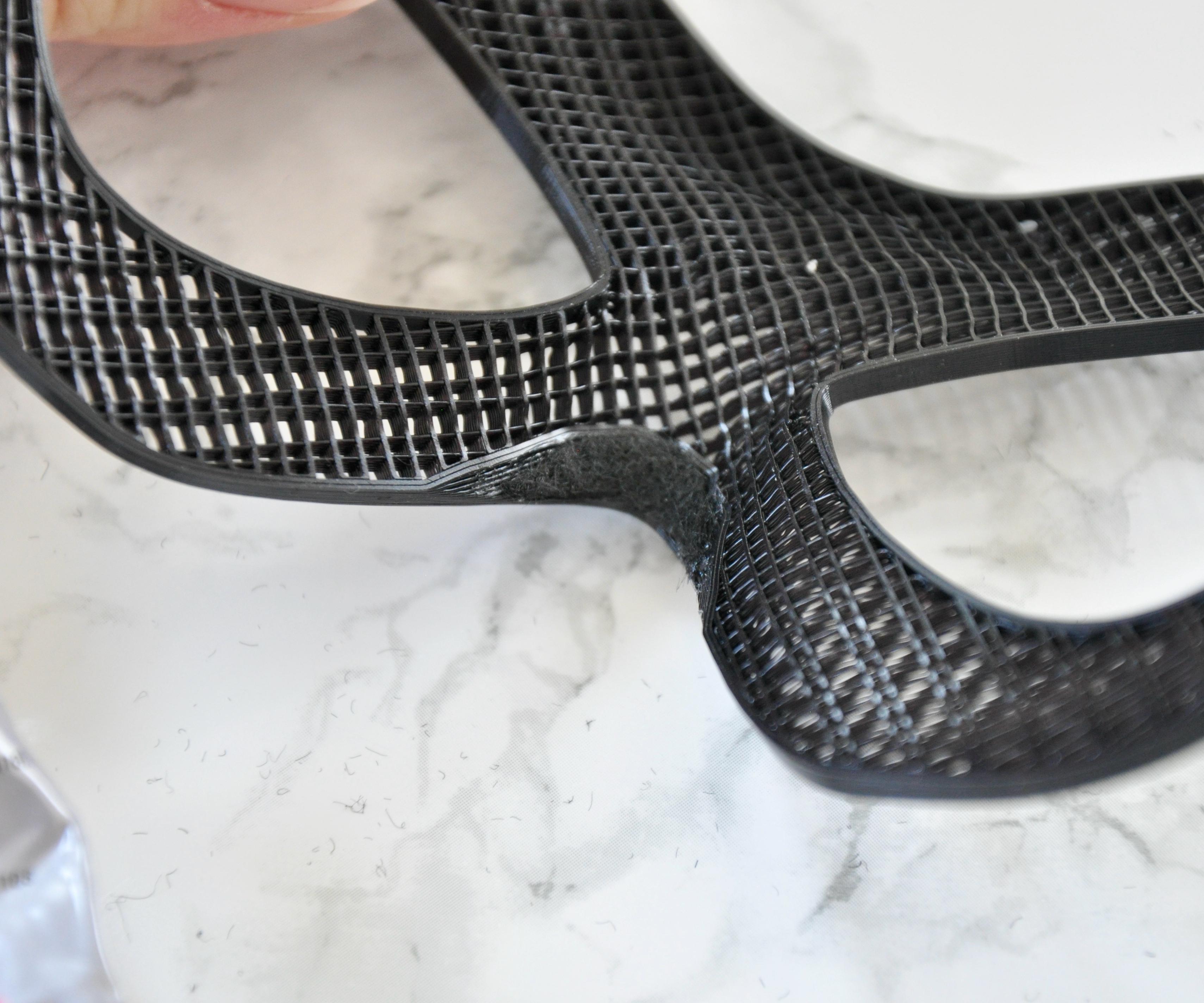
I recommend adding a bit of felt at the nose for extra comfort if you are doing the tie mask since it will be tight against your face (you won't really need this for the stick mask version). You don't need much at all and match the color to the mask the best you can so it doesn't show through the front.
Elastic Band (or Tie)
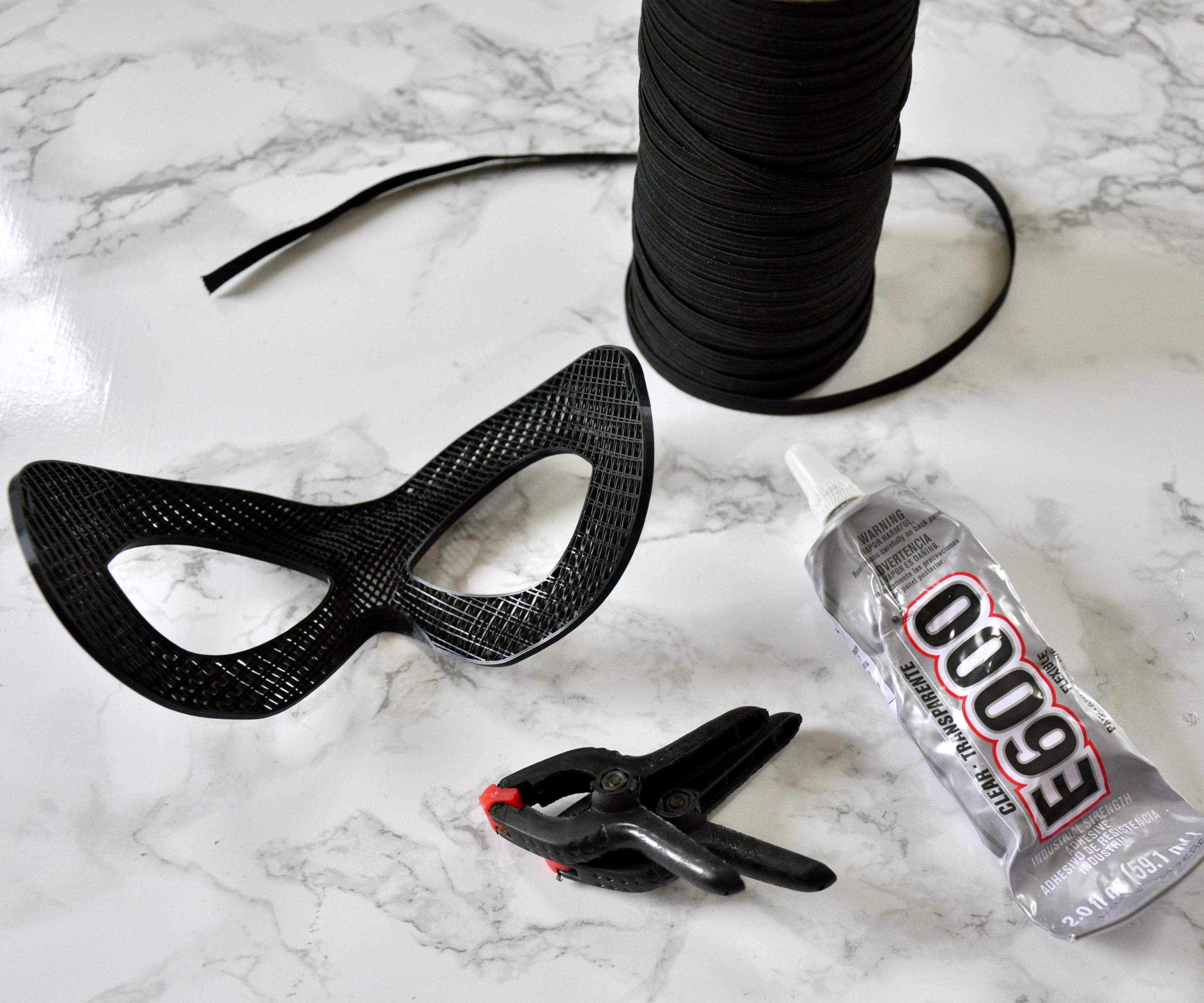
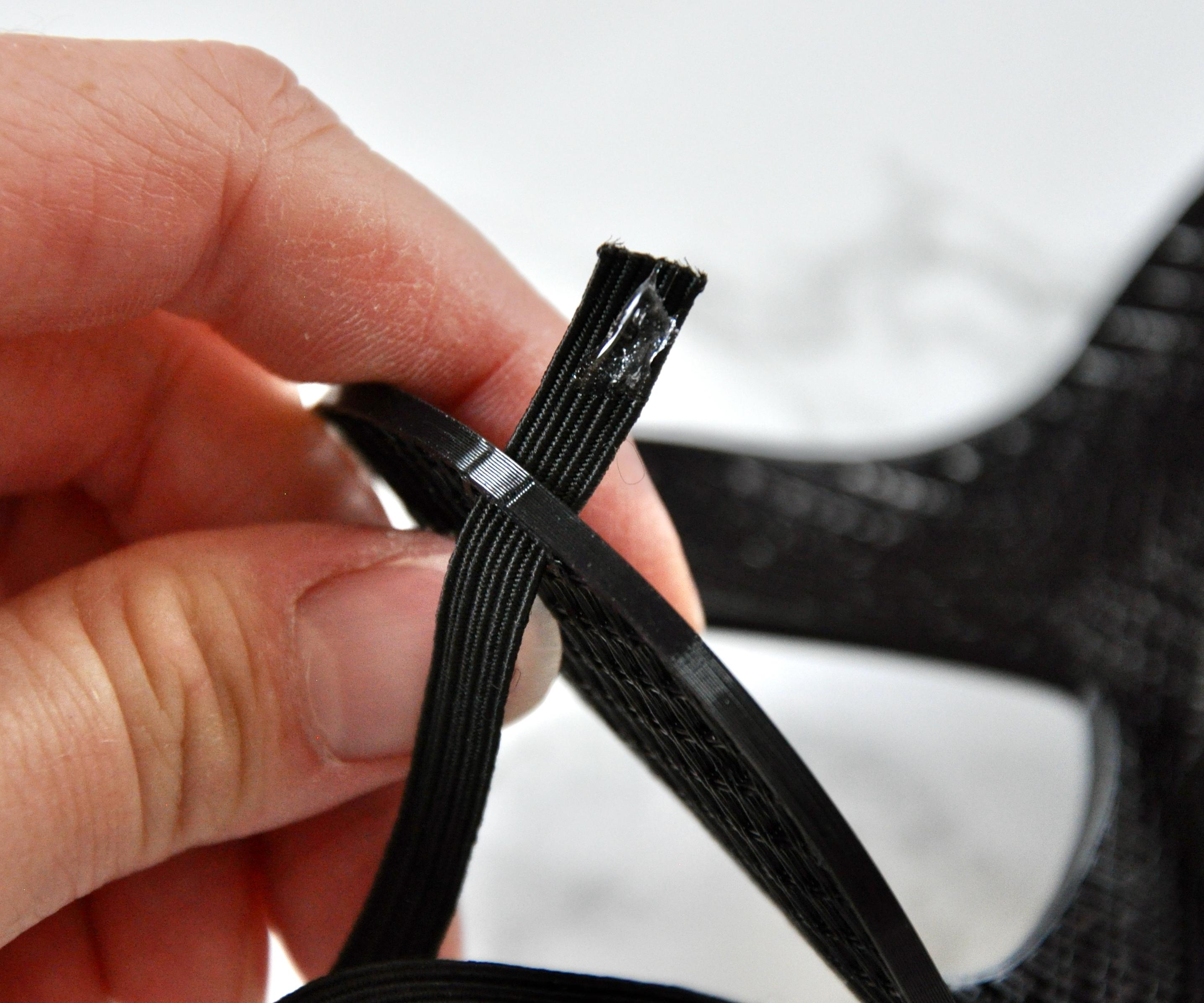
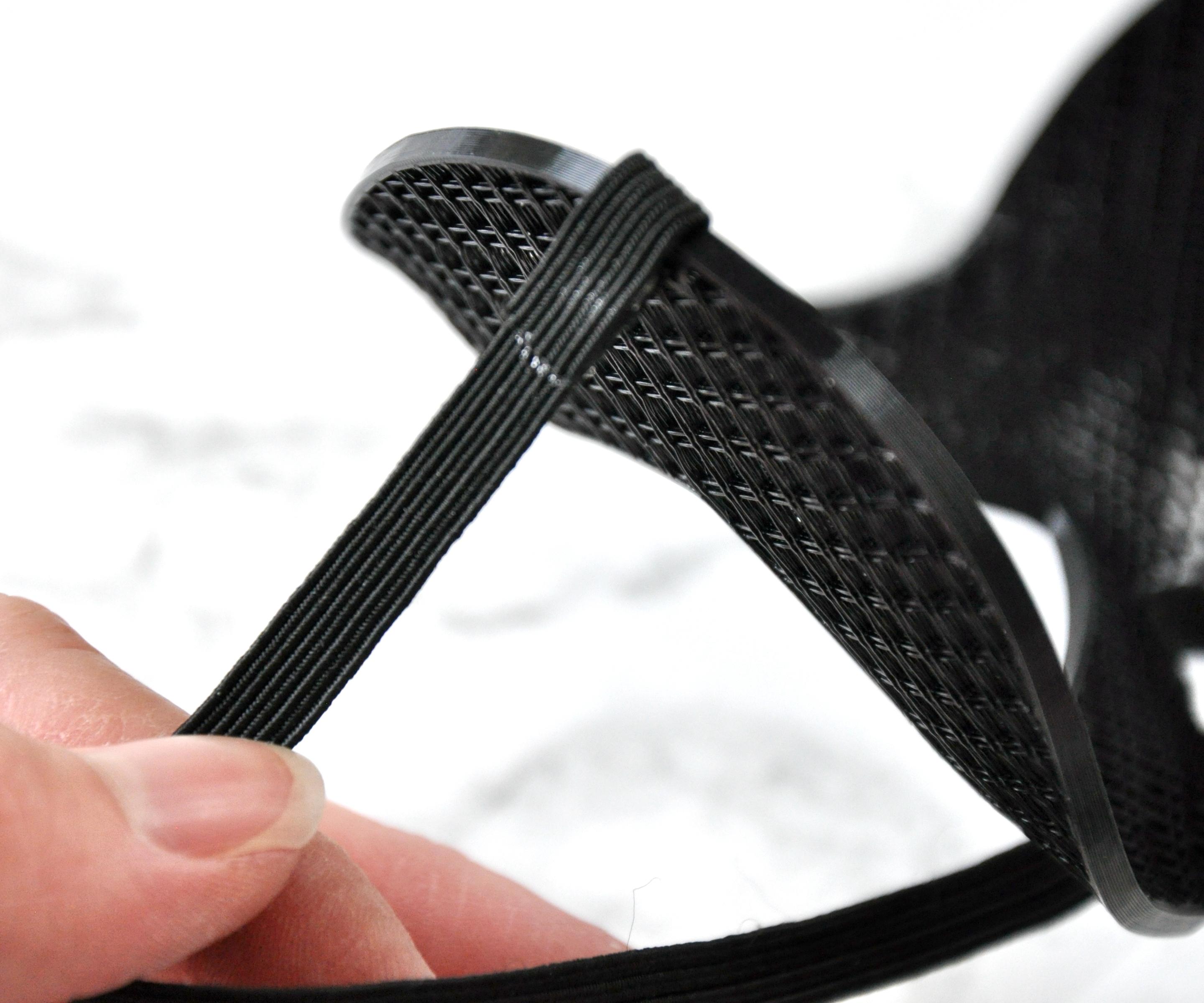
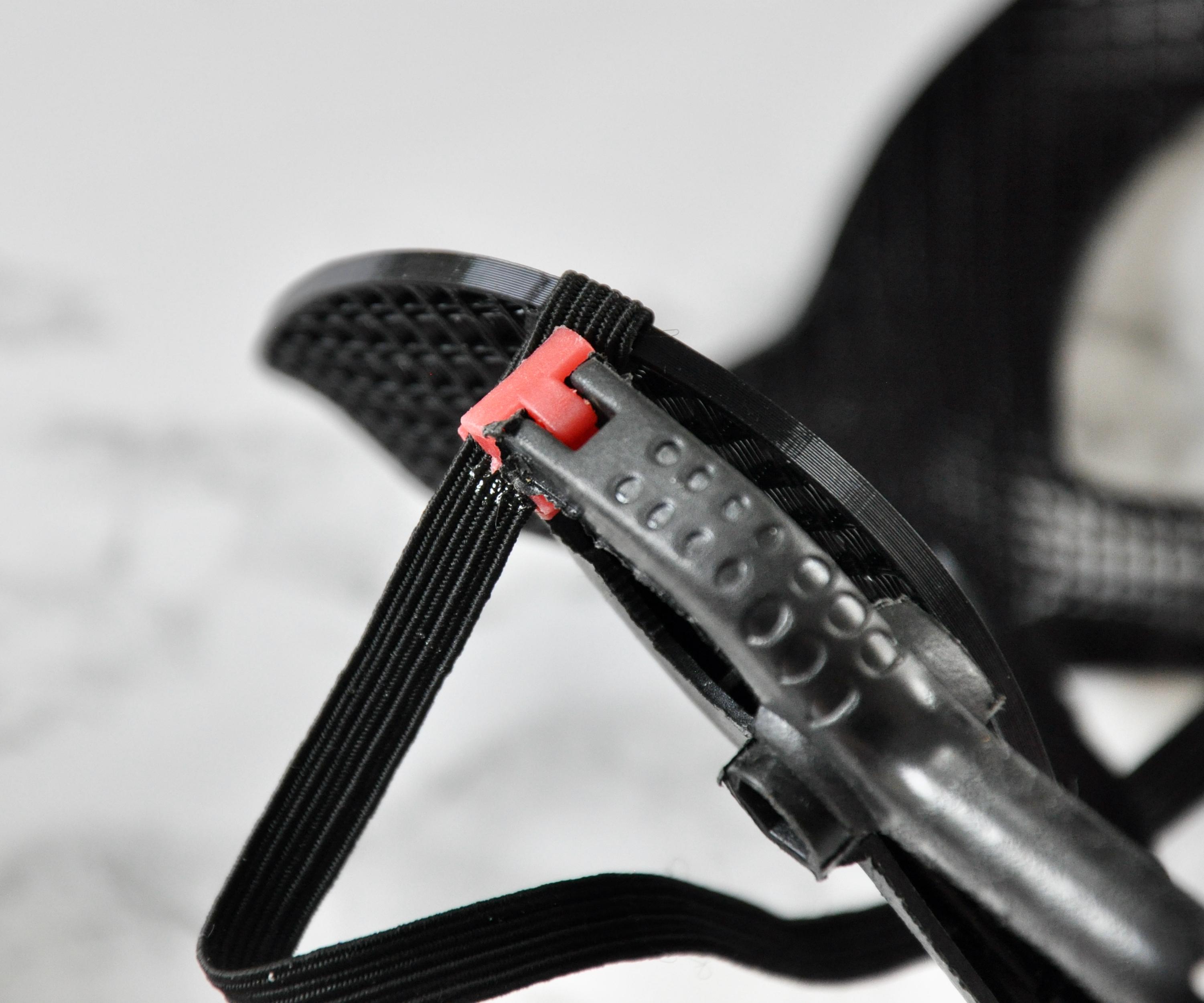
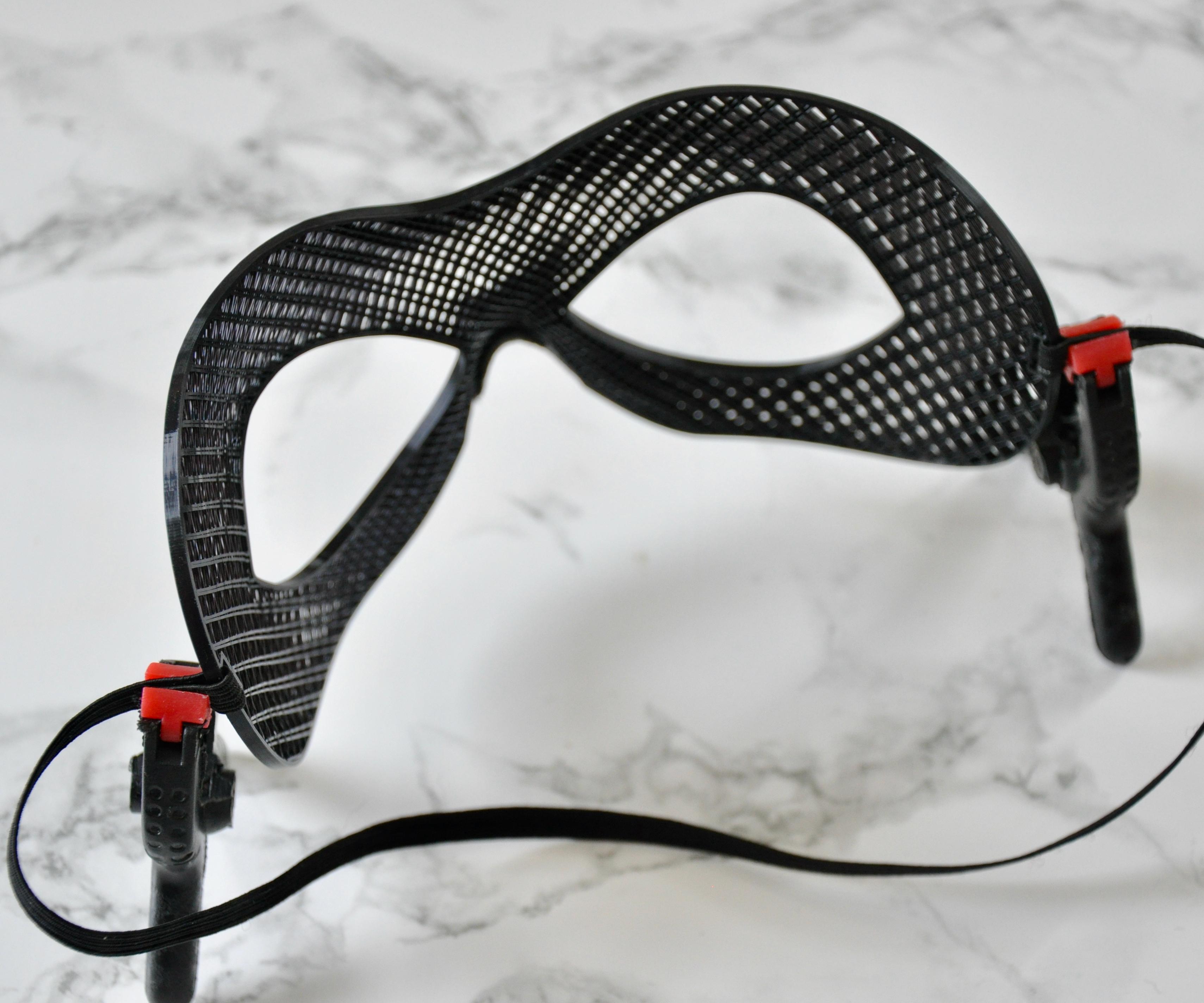
If you are doing the tie on mask, glue the elastic or ribbons to each side of the mask. I prefer to glue the ribbon or elastic to itself rather than the mask itself.
Embroidery
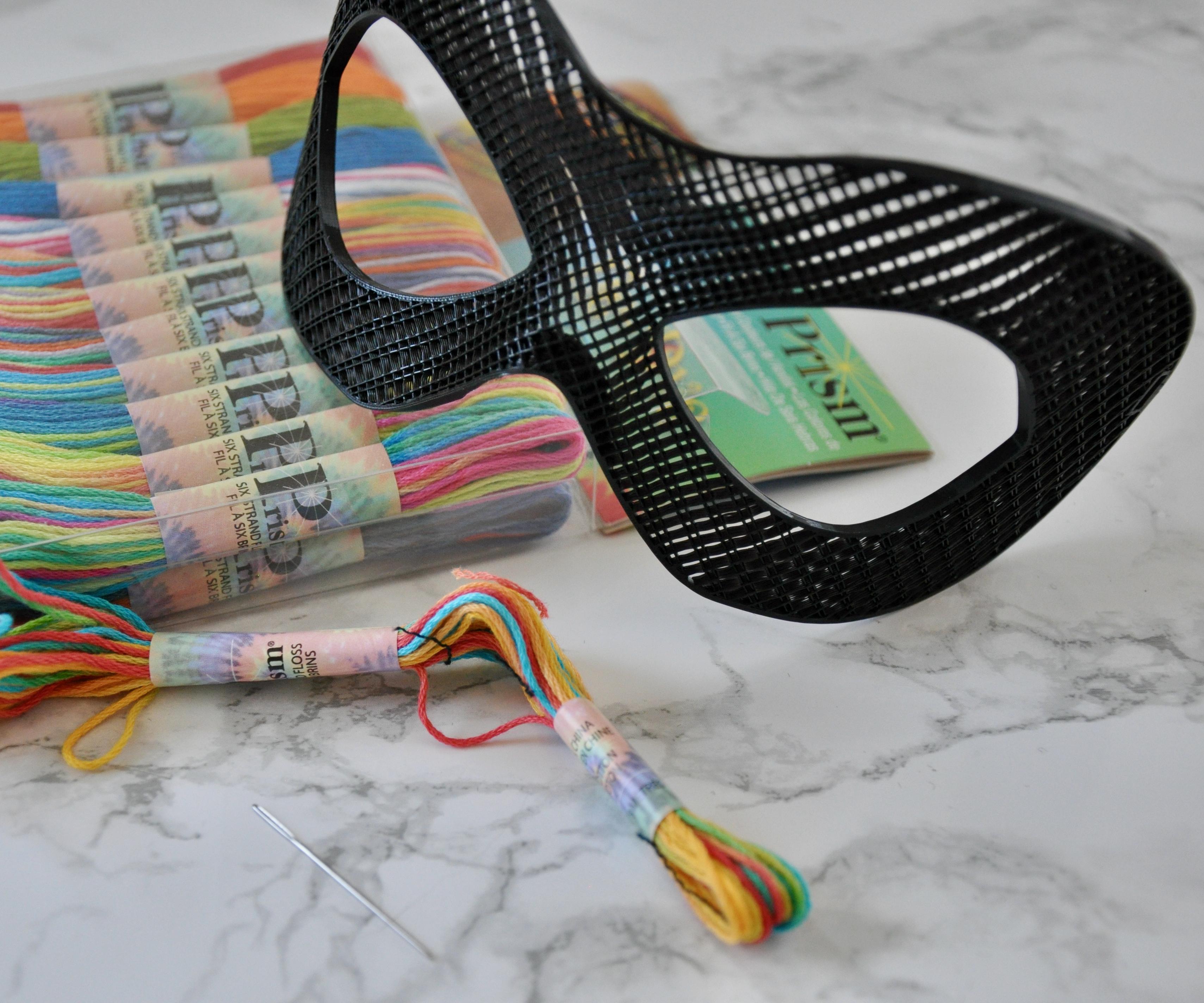
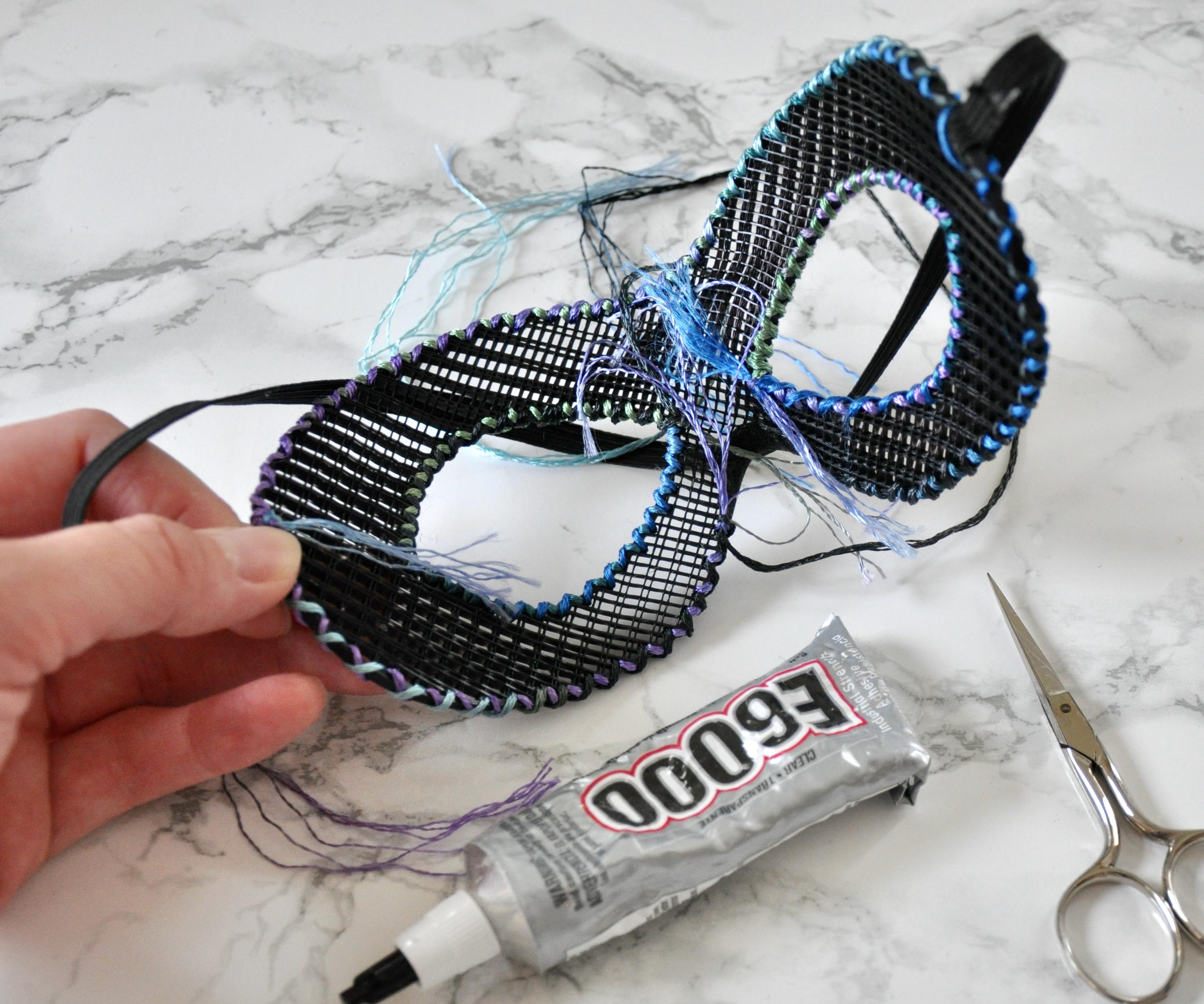
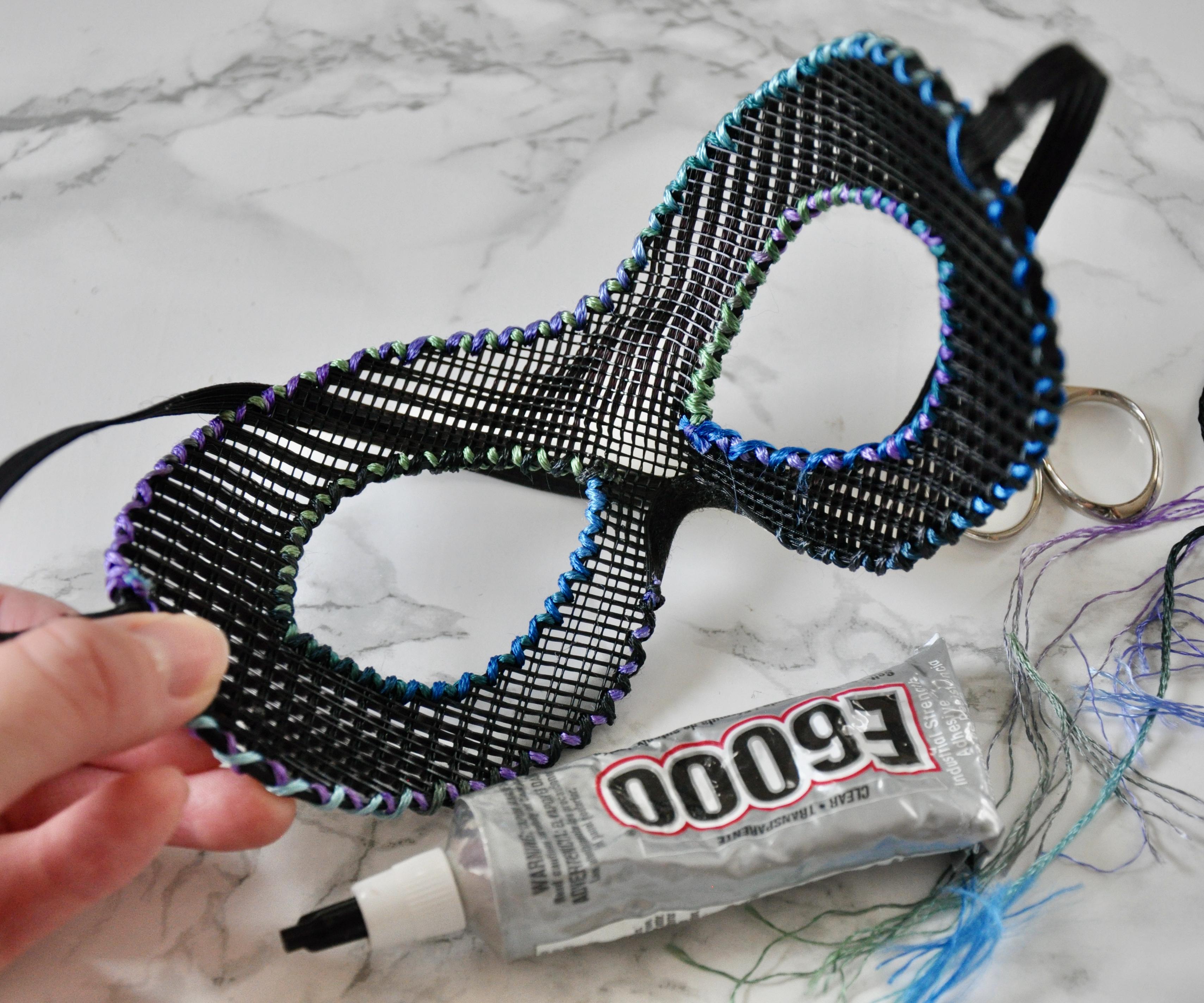
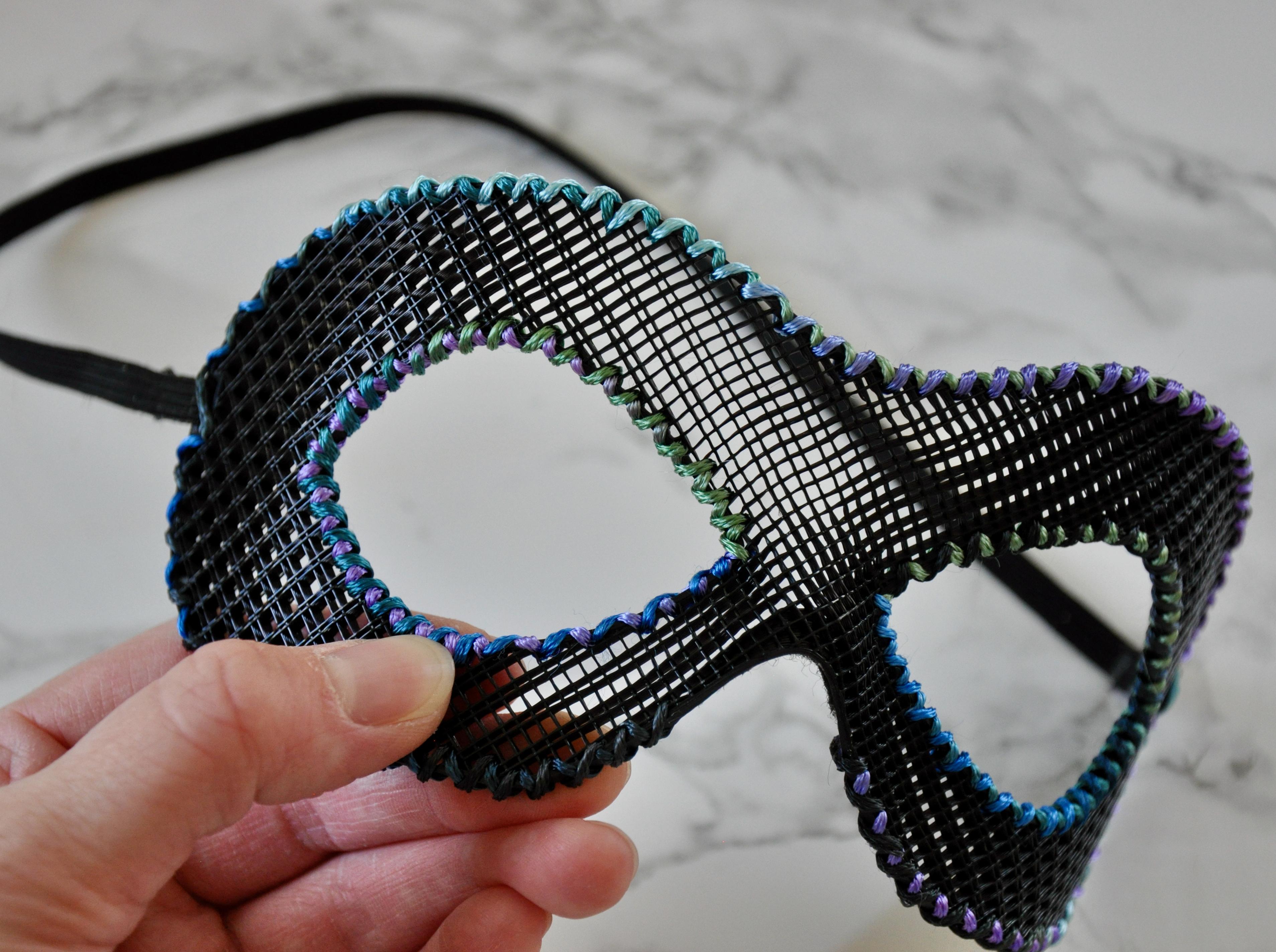
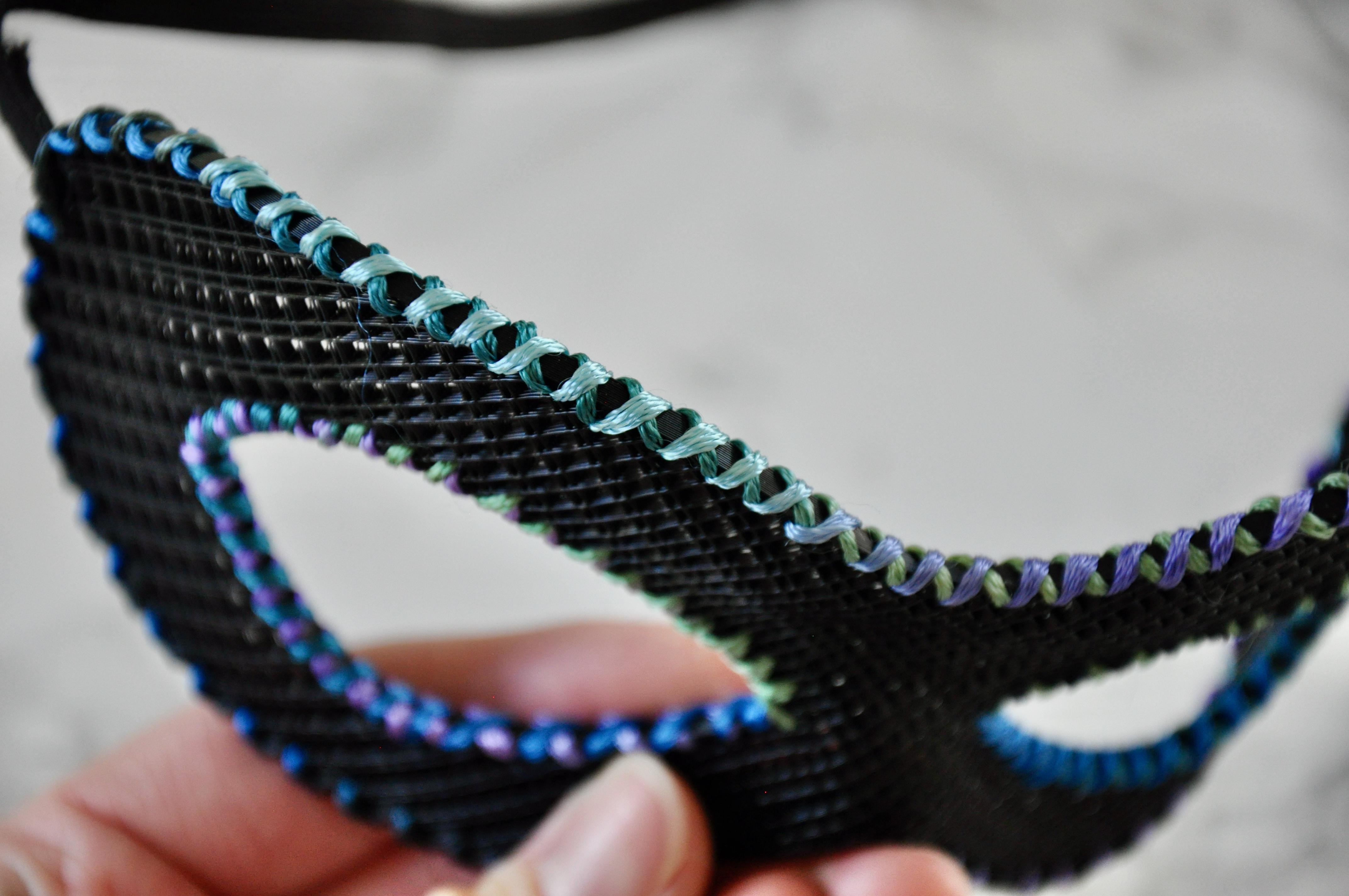
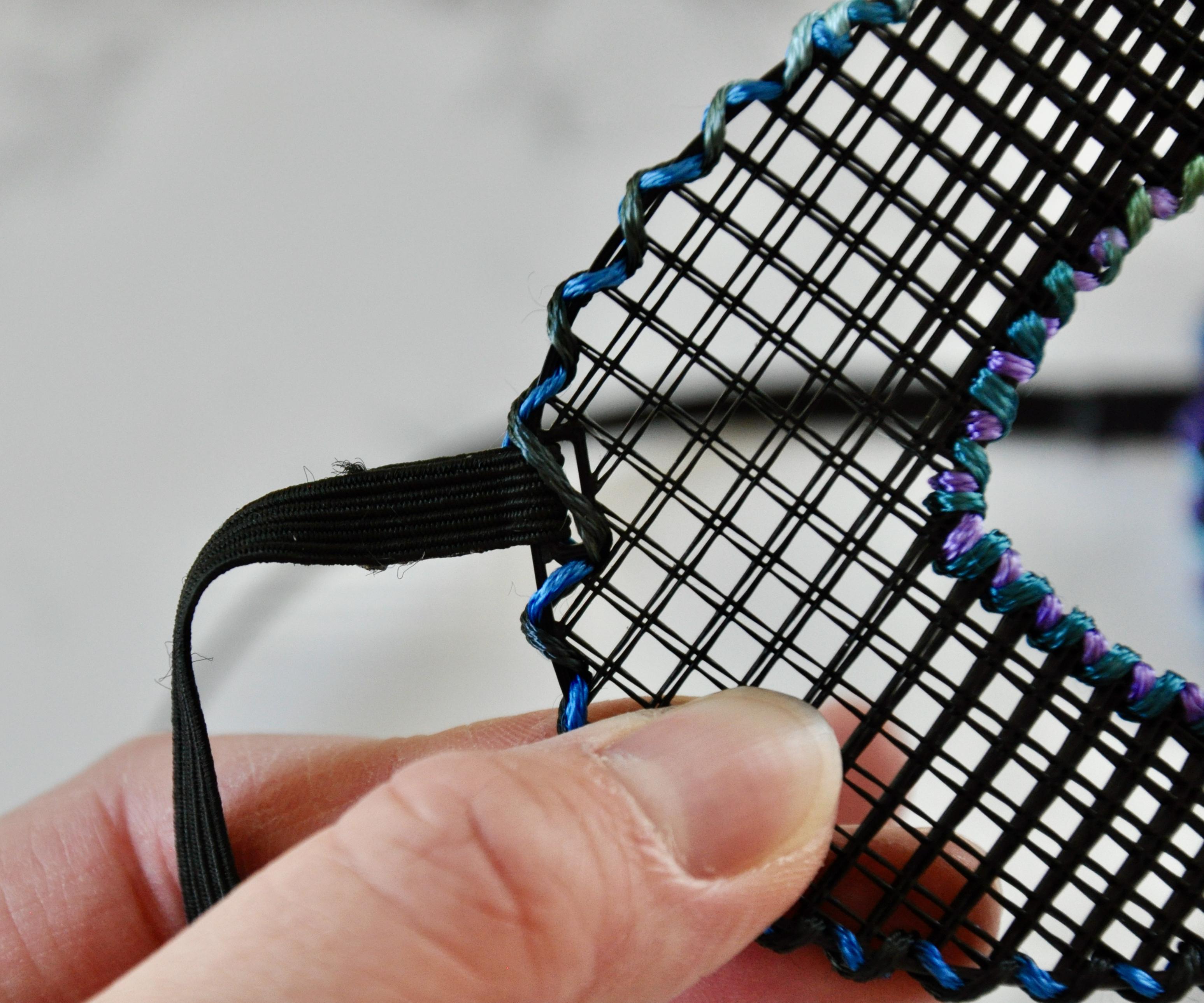
Embroidery or some other decoration is a great option for the plan massk if you want to jazz it up. I also thought it could be interesting to hang small beads or charms from the bottom using jump rings and chains.
I decided to embroider with a silky peacock embroidery floss. I wanted it to be interesting and after some tests, decided to stitch around and then stitch back in the same holess to create a criss cross pattern.
Whatever you do, I recommend tieing off as little as possible. Each place you have to start/stop, you'll have to knot, glue, and trim it down as much as you can so it isn't visible from the front and isn't uncomfortable from the back.
Stick Mask
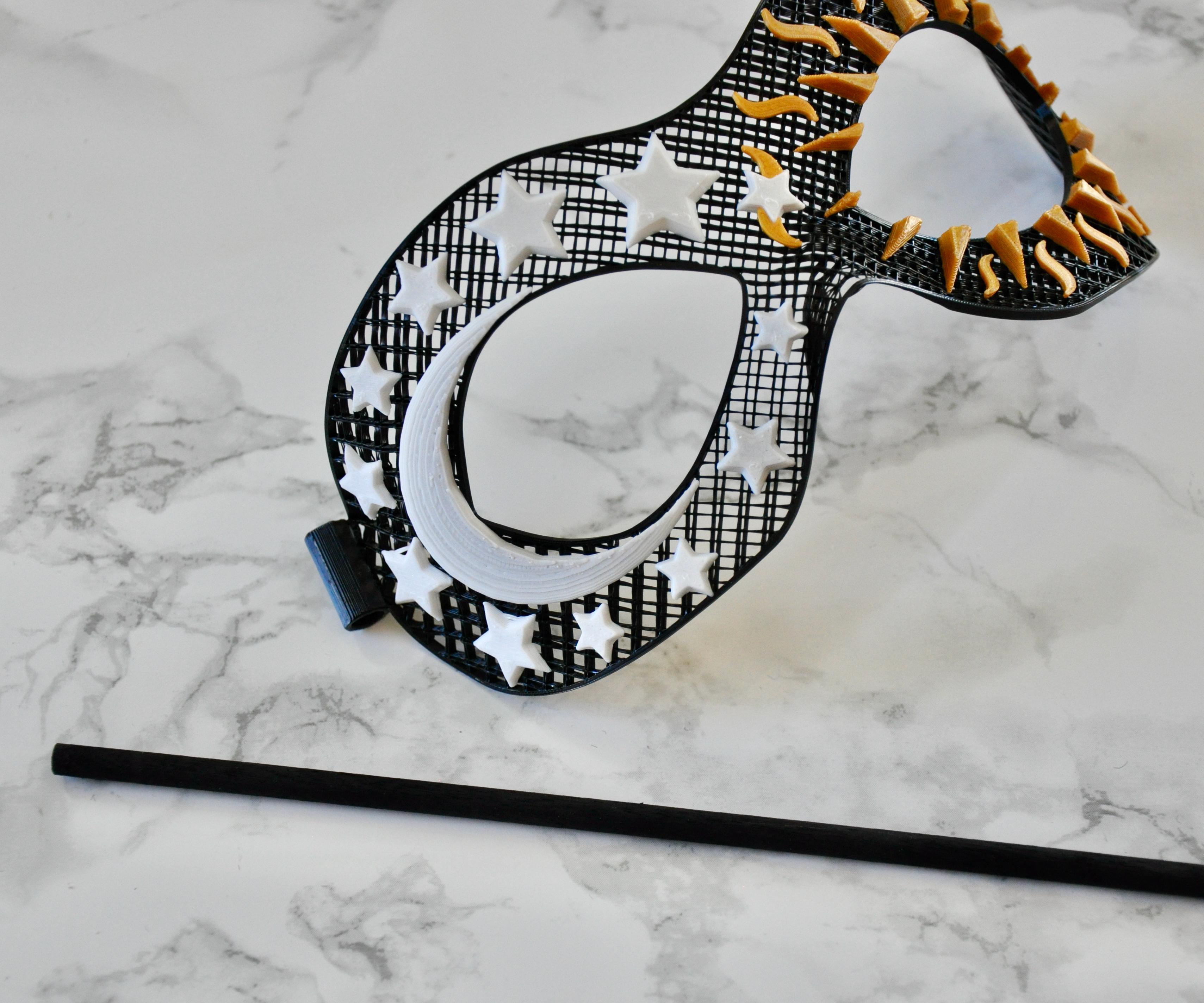
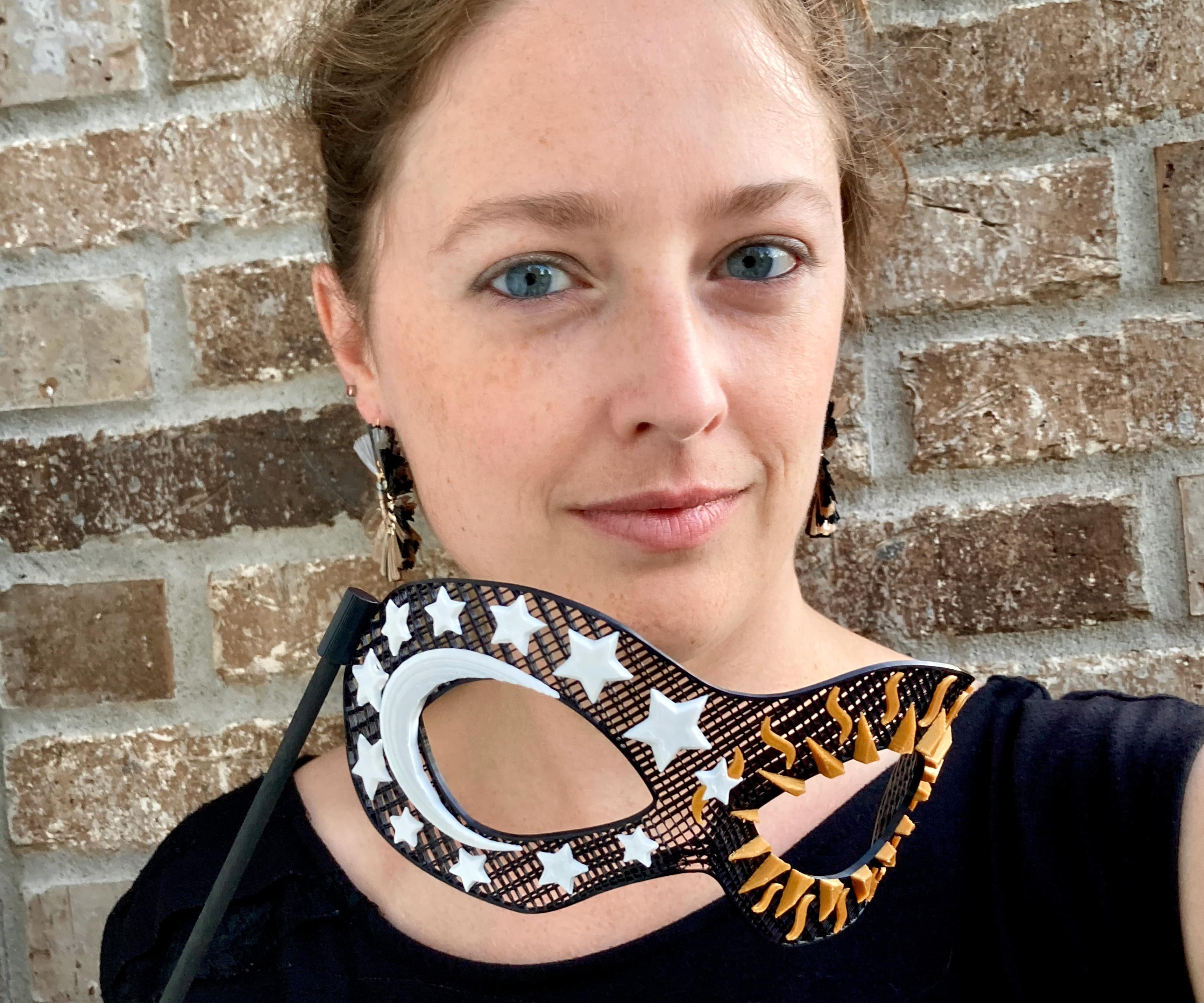
The stick mask is pretty easy. Just glue the stick into the hole you created.
Enjoy Your Masks
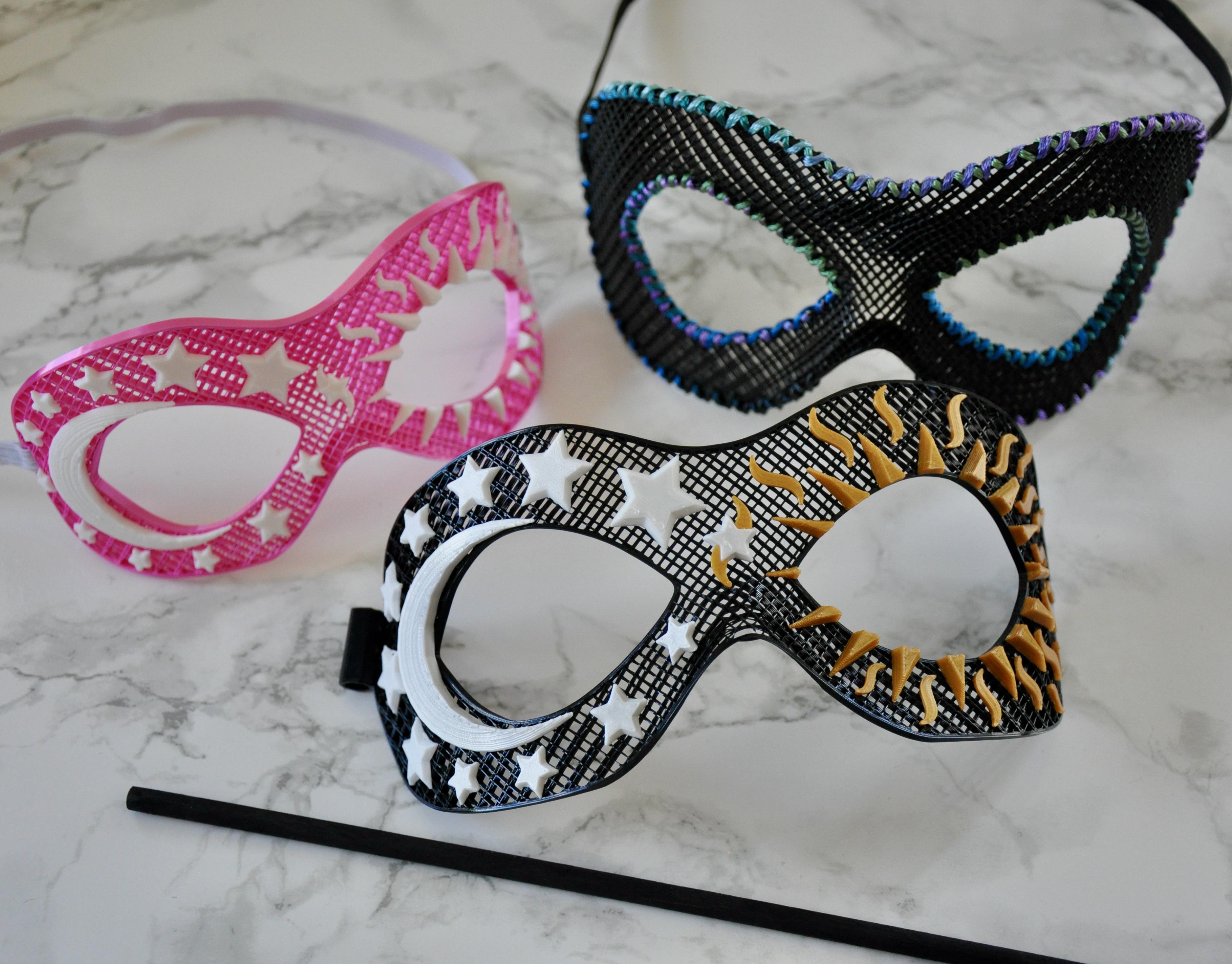
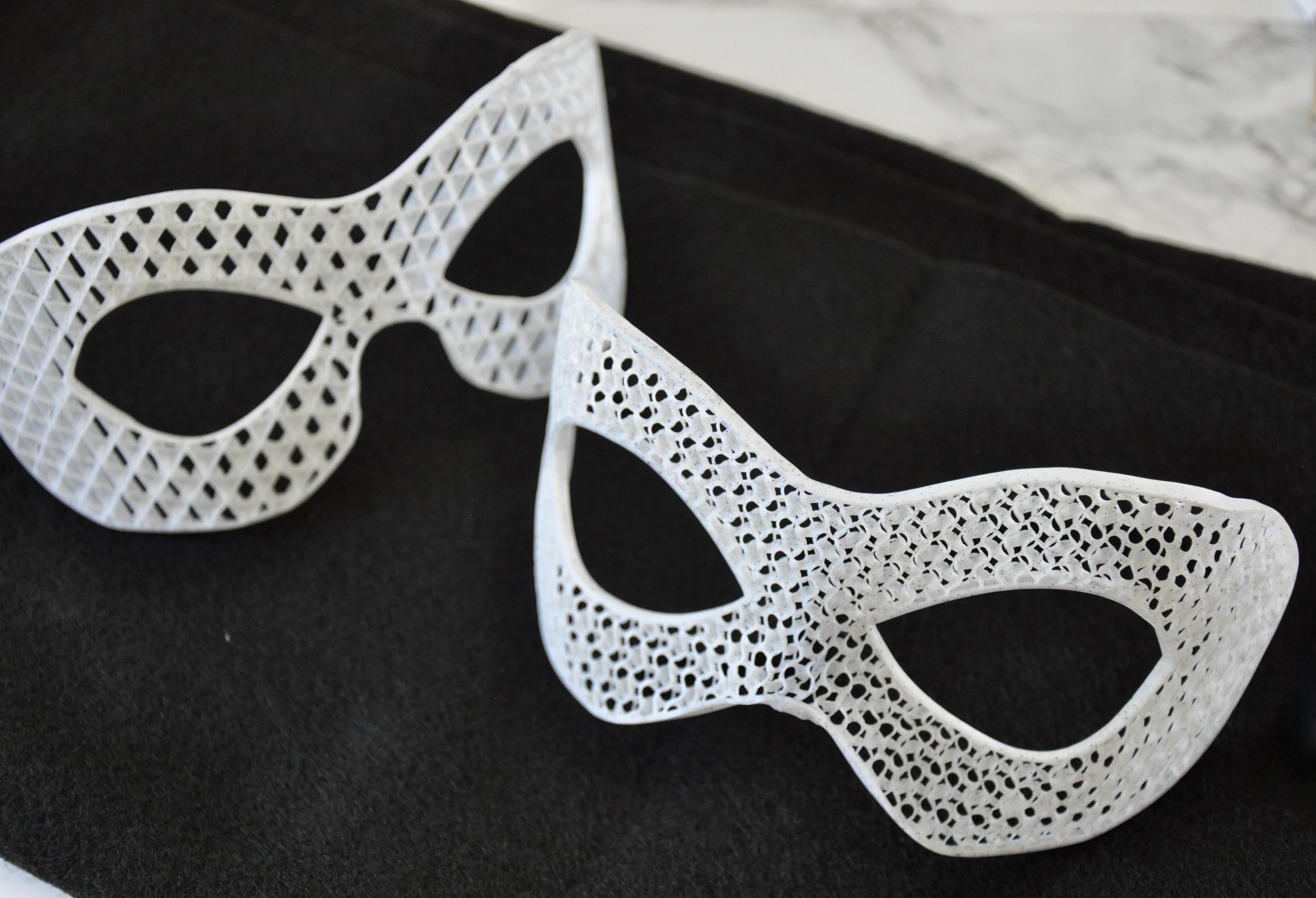
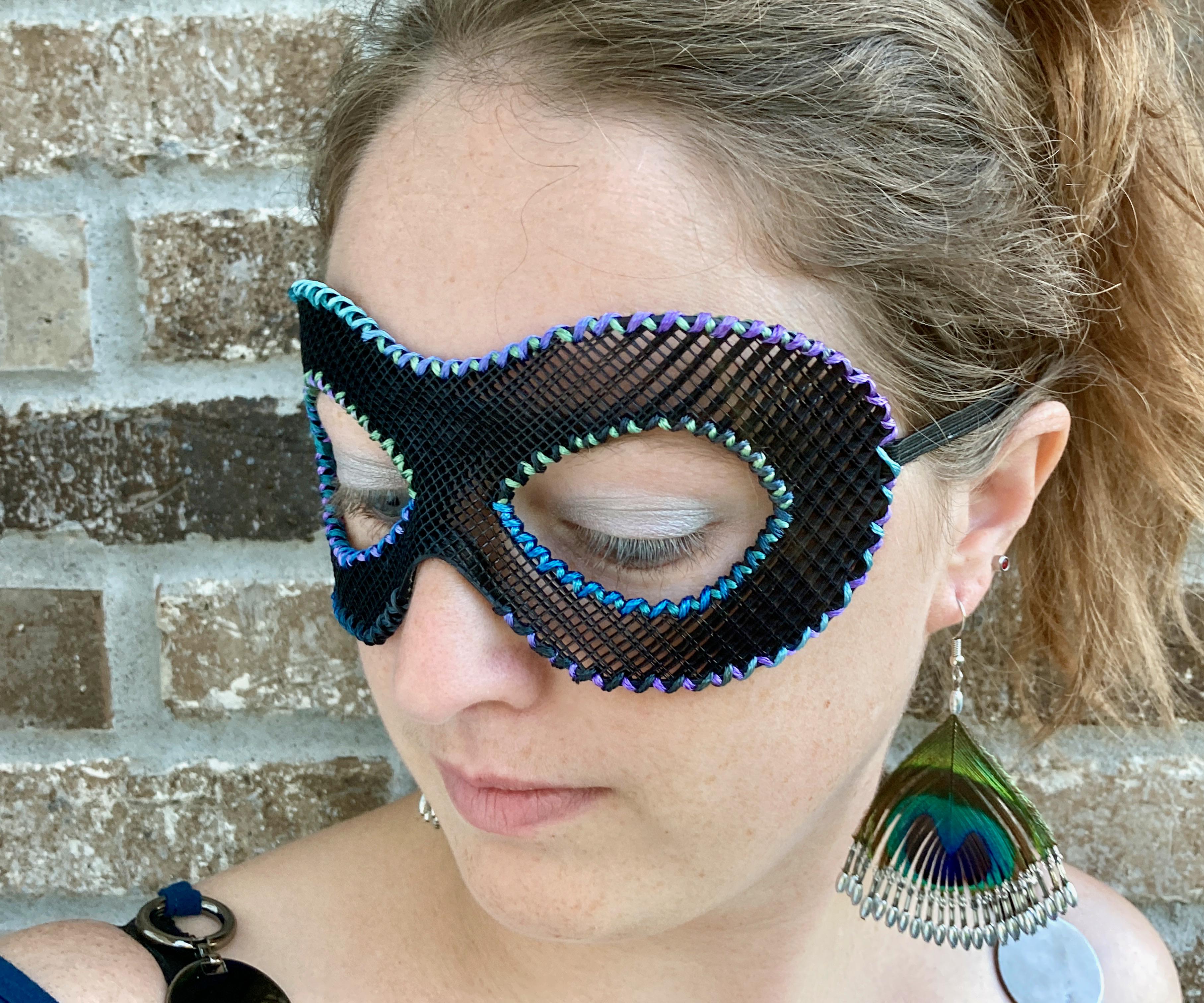
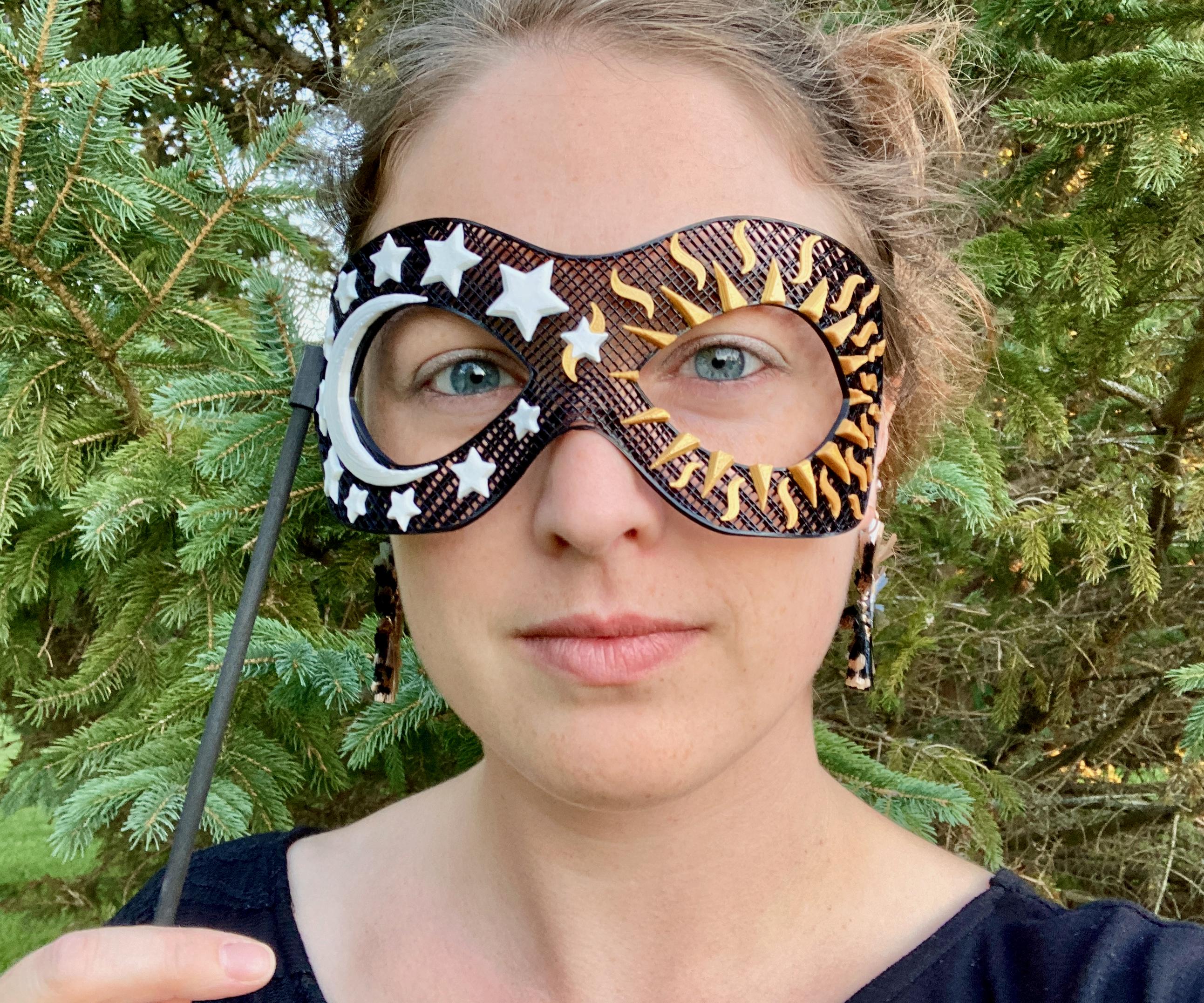
Just a look at the child's mask I did, as well as some different tests with infill patterns.